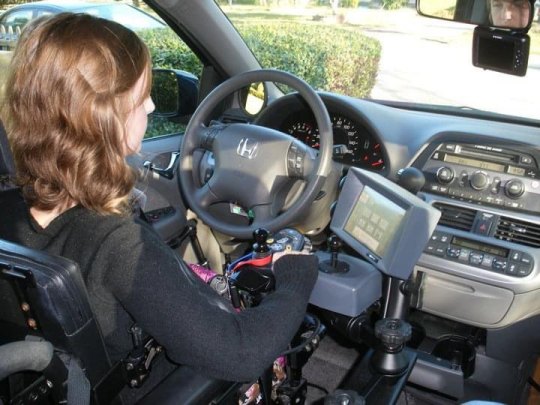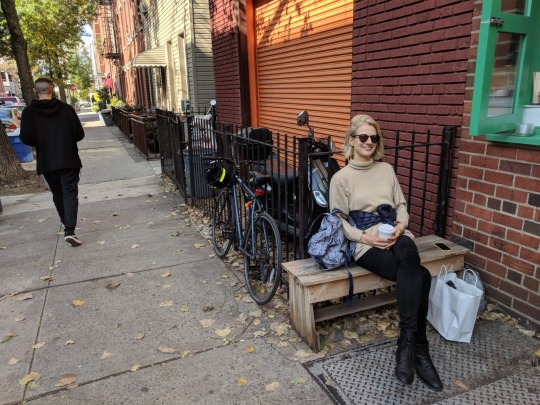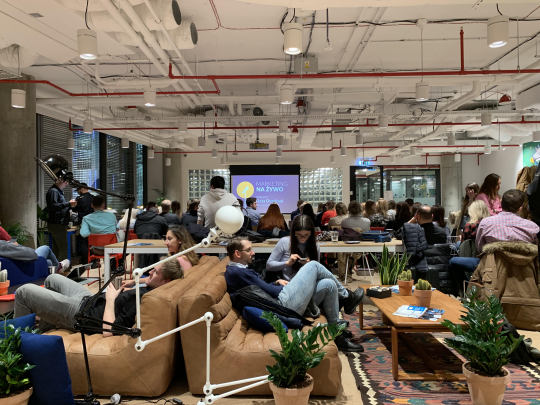#or are in the city and she needs to be able to reliably commute to work and so do I now
Explore tagged Tumblr posts
Text
More bad news and all lmao
#therapist has said she can’t help parent and step-parent’s relationship#which is great and fine whatever but#parent is turning everywhere for help and they’re all saying lol it’s toxic and ab/sive get out of there#which is all well and good if you’re independently wealthy and can rent an apartment at the drop of a hat#but if you’re barely keeping afloat with tons of debt because of step parent’s shenanigans and tied into a joint lease there are problems#plus step parent will not just let them go#I know it.#it’ll be worse than when parent left my dad#I just know it will be#the dv charities also cannot help because they’re all full#or are in the city and she needs to be able to reliably commute to work and so do I now#idk it just feels like the universe has been taking a big huge continual shit on the both of us for years#thorn.txt
1 note
·
View note
Text
I'm helping organize this fundraiser for a good friend who's in a major bind. Her van, which was modified to be wheelchair accessible, has failed. It costs upwards of $75,000 to replace, upfront.
Right now, she has no transportation. Please donate and share this post to help spread the word. Thank you!
NEW WHEELS FOR HANNAH
Back in August 2022, Hannah’s van shut off by itself in the middle of a busy street. The computer system that allows her to drive the van with hand controls had failed. She was stranded.
Hannah has Muscular Dystrophy, and uses a power wheelchair full-time, meaning that she needs a wheelchair-accessible vehicle to commute or travel anywhere. For the past 12 years, Pequod, her fully modified van, has allowed her to get anywhere she needed to go. Hannah drove it through college and grad school, to and from her teaching position at the University of Tennessee-Knoxville, and across state lines to her new house in a small town outside Pittsburgh, Pennsylvania, where she lives with her husband, Jared, and a ridiculous shepherd-corgi mix named Pumpkin.

Despite the van's most valiant efforts, these vehicles are only designed to work for 10 years, and while Hannah and Jared were grateful to see it last an additional two years, they now find themselves without reliable transportation. They do not live in a city with public transit, so without an accessible van, Hannah is essentially homebound.
As her friends, we have decided to help her ask for help, because a new van with the modifications she and her chair require (a lowered floor, a ramp installation, and EZ-lock restraint system) costs upwards of $75,000. The vast majority of that will have to be paid upfront. For a variety of reasons, Hannah and Jared have decided not to get a van with the computer system and hand controls this time, which would have added another $35,000 to the total cost. This will not be one she can drive, but they have weighed the pros and cons and decided they can make it work.
The service that helped Hannah get Pequod 12 years ago said they’d only ever finance one vehicle. Another won’t help because she is married and her husband is able to go out for groceries and necessities. Medi-transit services can take her to the hospital and nothing else is considered a necessity.
Hannah has dedicated a huge part of her life to disability advocacy. Her heart is enormous and through knowing her we have all come to see how much of her desire to help others informs her everyday life. Much of our time together is spent discussing ways to open eyes to a new way of seeing the world, the realities of living with a disability, and how the system has failed others less fortunate than herself.
When we heard about the dire straits Hannah was in with her van, we knew we had to do something. Unfortunately, we cannot do this alone. Your donations would change Hannah’s life, and would also allow the people who care about her to stop worrying so much.
70 notes
·
View notes
Text
Access To Improve Emergency Obstetric Care (EmOC) Using AI

EmOC Meaning
How AI is being used to increase access to Emergency obstetric care (EmOC). Technology may make healthcare more accessible, as shown by one case study that examines location and access to EmOC.
For individuals worldwide, access to healthcare continues to be a major obstacle. To acquire the care they need, many may make lengthy commutes, skip work, or scurry to locate childcare. Delays in diagnosis, treatment, and even life-threatening emergencies might result from these obstacles.
Governments and public health authorities continue to struggle with the lack of current, reliable data to guide choices for their communities. It discovered a way to assist in an unexpected location: Google Maps travel insights.
What Is Emergency Obstetric Care?
Improving mother health needs Emergency Obstetric Care. EmOC may assist control difficulties during labor and is a potentially life-saving intervention. Accessing EmOC, however, might be difficult, particularly in nations with low and moderate incomes.
Types Of Emergency Obstetric Care
Reducing mother and newborn death rates during pregnancy and delivery requires access to emergency obstetric care (EmOC).
There are two types of EmOC:
1. Basic Emergency Obstetric Care (BEmOC)
Essential emergency care techniques that address the most prevalent and possibly fatal problems after delivery are provided by basic EmOC facilities. Smaller medical institutions or community-level health centers often provide these services.
2. Comprehensive Emergency Obstetric Care (CEmOC)
All essential treatments as well as extra cutting-edge medical procedures are included in comprehensive EmOC. This level of treatment can handle more serious issues and is offered at bigger medical institutions, often hospitals.
Emergency obstetric care (EmOC)
Understanding geography and access to medical care
One area where these access issues are most urgent is Emergency obstetric care. Research indicates that women’ and babies’ outcomes throughout pregnancy and labor are greatly impacted by the length of time it takes to go from home to medical facilities. In fact, prompt access to Emergency obstetric care (EmOC) may decrease intrapartum stillbirths by up to 75% and maternal fatalities by up to 50%.
Historically, geographic distance was used to estimate access to these services. However, anybody living in a densely populated city is aware that proximity to a facility does not always translate into speed. A simple trip might become a lengthy one due to traffic.
This changed the way people saw the issue: Women in metropolitan areas also have difficulties in being able to go to the doctor in a timely manner when it counts most. In order to provide decision-makers in Nigeria Africa’s most populous nation, where over 50% of the population lives in densely populated metropolitan areas and where maternal fatalities account for roughly a third of global mortality travel time information, everyone teamed with the On TIME Consortium last year.
Researchers collaborated to develop a program that pinpoints hotspot locations where women take the longest to seek treatment by using information from Google Maps. The dashboard shows us how long it could take a pregnant woman to go to a facility where she can receive EmOC by estimating the travel times to the closest, second-nearest, and third-nearest emergency obstetric care facilities for various locations.
It sought to provide data-driven insights to researchers, public health authorities, and anyone who need them in order to identify locations with restricted access to Emergency obstetric care(EmOC). This would allow them to plan changes to ambulance routes and road infrastructure, as well as to construct new facilities or update existing ones. For instance, it has aided groups such as Emergency Response Africa in allocating resources in an educated manner. Additionally, nous believe it may help others comprehend how geography and socioeconomic fairness are related.
Increasing care accessibility
Additionally, this organization is contributing to the discussion of disparities in access to Emergency obstetric care(EmOC) care. In addition to EmOC care, one can collaborating with other public health partners to provide a more realistic picture of access issues, such as widespread healthcare accessible, access to immunization locations, and parks and other outdoor areas.
For years, experts have investigated how AI may help with access issues, such as creating AI models to identify TB in chest X-rays and decipher the size and location of the fetus during pregnancy. Instead of forcing patients to go to a doctor’s office for these vital checks, its’ve made these models portable so that healthcare professionals may utilize them in their communities. The solutions, such as Open Health Stack, assist developers worldwide in implementing healthcare data standards for applications.
Summary
It’ll keep searching for fresh ways that technological advances can help more people get healthcare. Help keep assisting people worldwide in leading healthier lifestyles, whether that means introducing new tools, facilitating further research, or discovering innovative applications for products.
Read more on Govindhtech.com
#EmOC#EmergencyObstetricCare#GoogleMaps#healthcare#BEmOC#CEmOC#AI#AImodels#News#Technews#Technology#Technologynews#Technologytrends#govindhtech
0 notes
Note
I hope you're doing well! I know you posted about a stressful situation last month, and I hope it's resolved itself. Sending good wishes you you and Hamlet!
Thank you so very much for checking in on me! I really do appreciate it. An update to that post under the cut.
Carol, who moved in with me on May 28, is still here. Right now, we have set a tentative move-out goal of the first or second week of August, but this is pending an apartment application that she hopes to finalize on Monday and a job situation that is a complete mess.
Basically, according to my limited understanding, Carol is licensed to teach in Florida. Alabama has a reciprocity clause with Florida, but it must be applied for. Carol has recently begun this process, but her teaching license(s?) is (are?) set to expire in December unless she passes certain exams. She’s already passed one for...general middle and high school teaching, I think, but failed a math exam. She has an art history exam Monday afternoon and expects to pass. I hope so, because she’s been doing nothing but watching Netflix and shopping for houses for the last few days in her new 2017 Jeep Cherokee.
I remain unspeakably grateful to my parents for teaching me financial literacy, because until I witnessed Carol’s decision-making, I had no idea how hard it was for some people to not spend money unwisely.
As a reminder, Carol is dead broke. She has $153,000 in debt across student loans, medical bills, Czech and US taxes, and some personal loans she would like to repay to friends for helping her. She is unemployed and has no support from her family and has relied on couch surfing at friends’ and acquaintances’ homes since last summer for housing. Since moving in with me, she has been trying to find somewhere to live that would accept her with all her debt and her nonexistent US employment history for the last ten years. Based on what she’s said, I think she has about $9k in the bank--or did, until last week.
In short, she needs a car, a job, and a home, and as far as I can tell she doesn’t care which order they come in.
Two weeks ago, she was offered a position in a rural town about 30 minutes from where I live. It’s a small, very country town which desperately needs a special education teacher, something I think Carol really does have a passion for. However, because she hasn’t finished the reciprocity licensure application yet, they’re having a lot of roadblocks with her paperwork, compounded by the fact that when she left Prague last year, she left all her important documentation behind: things like her birth certificate, her social security card, and her letters of recommendation, which for some reason she did not have electronic backups of. The principal has been trying to get what she needs from Carol for two weeks. Carol is constantly saying that things are “in process” but has nothing to show for it.
As far as we can tell, the job is still hers, but the school year starts August 13th and she still hasn’t been approved by the Board of Education because the paperwork is still not finished on her end. She did not attempt to replace her birth certificate or social security card until they needed it for the application. (Her friend in Prague--and I am beginning to realize she uses the word “friend” for anyone she’s met longer than sixty seconds), who frantically packed up all her belongings when she realized she would not be able to go back to the city, cannot ship her belongings or go through them for the important paperwork until next summer, as she and her husband are currently vacationing in Rome for a year.
Carol decided last night she is also going to apply for some online Department of Defense position--I didn’t understand the details and don’t really want to know, except that it’s also teaching and some administration. We’ll see how it works out. She is growing increasingly annoyed at the principal’s requests for paperwork completion, which baffles me.
So, job: shrug? Maybe?
Car next, then, but this whole mess also goes back to the financial literacy thing. My parents have always been extremely frugal (pennywise, as my dad would say), and from childhood they made it very clear to us to not buy things you couldn’t afford. They’ve never had a car payment in my memory, and they paid off their house about ten years ago. This means they drove a lot of junkers for a very long time, and for a very long time we had very few vacations, but now they’re fully financially stable and debt-free and my mom has a car that she drove off the lot brand new that they paid cash in hand for.
If I had been in Carol’s situation, I would have found a cheap, mostly reliable used car that probably wasn’t going to explode on me and drive that as long as I could while saving up for housing. I did in fact drive her to look at several used cars, most of which would have been even outside my expected budget (hers, as it happens, is larger even than that, because one of her overseas friends was willing to contribute $5000 to the cost of a vehicle). (I paid $6500 for my current car, a 2004, in college in 2012 with 70,000 miles on it at the time, and have driven it ever since.)
She rejected all of them because they did not have good “energy” and “feelings.” One she was willing to buy at $3700, but told the seller to go pay for his own inspection (once I explained to her what mechanical inspections were as a concept), so they ghosted her. She also is extremely afraid of head gasket failure--I don’t know why, since she knows nothing about cars--and has assumed all vehicles she has driven are on the verge of it, so after the first week she refused to even look at a vehicle without a warranty.
This means she exclusively limited herself to used dealership options, which I’m just going to come right out and say was monumentally stupid. I don’t know if any car dealers follow me, so I’m sorry if I am misperceiving this, but in my experience almost every dealer I’ve gone to has been aggressive, manipulative, and extremely predatory in their interest rates. I cannot think of a riskier course of action in abject debt than to try to cut a deal with a car dealer for the sake of a warranty I doubt will cover that much truly expensive failure in the long run anyway.
On Thursday, Carol bought a $20,000 2017 Jeep Cherokee from a dealership down the road. I don’t know what she put down. I do know she did not use her friend’s money (why not??) and I know her interest rate on the car loan is 4%, which she is extremely proud of and which horrifies me. She also “persuaded” them into a limited warranty that will cover the vehicle up to 100,000 miles (currently at 42k, and they ~only offer it for cars under 40,000 miles~). I can’t tell you how bad an idea I think all this is.
Thursday night, as she was regaling me with stories of her negotiating prowess, she also tells me she has decided to buy a house. She’s sick of renting, and somehow, someone somewhere managed to get her approved for up to $120,000 in a home loan. She already has $150k in debt, another $20k from the car, and now wants to buy a house. She was delighted that she could make the minimum 7% down payment, even though it would wipe out every cent she has left and leave her less than $500 to her name for moving expenses, utilities, food, title registration, etc. afterwards.
She doesn’t even have a secure job yet.
However, this plan seems to have fallen through. She went out with a realtor several times this weekend and came home the last time in great, heaving sobs, because she can’t find the 3bed 2bath she wanted in her price range. (For reference, most homes in this area go between 200k - 250k right now for 2-3bed 2ba, and the closer you get to the city--I have about a 20 minute commute--the higher it gets. My next door neighbor sold her 3bed 2.5ba for >300k three months ago, and Carol knew this.) She was absolutely devastated that the only things in her range were “tiny little ugly flipped houses” and “the ghetto.” The realtor basically said she wasn’t going to waste any more of her time. Carol repeatedly told me how grateful I should be that I got in at the price point I did a few years back, because no “normal people” could ever afford to break into the market again.
I tried to tell her that it was because I lived in with a roommate in very cheap housing and then a cell of a 1bed 1ba apartment for eight years while I saved money, but if nothing else, I’ve learned I’m not allowed to compare our situations or histories or offer advice of any kind except “go ahead and buy what you want,” because that only makes her cry harder. In the end, she has decided to give up on the house for now and settle for the absolute last thing in the world she wanted, an apartment with a lease.
To be honest, until she has a signed contract in hand, I half-expect this lease to fall through as well. I have tried to offer what I think is sensible advice and been ignored or rebuffed. I have tried to offer a sympathetic ear and ended up with her sobbing uncontrollably on me--heaving, body-wracking sobs--over and over again with me trapped in my own home, providing endless emotional support for a girl I don’t even like. I have tried to encourage her to do the things she wants to do, since she’s going to do them anyway, and when she gets “negative energy” after the purchases (buyer’s remorse, I think, that one little inkling of sense saying maybe it wasn’t a great idea to buy a $20,000 car or an $1100 brand new iPhone without a job), she blames it on the exact thing I said I thought might be good and makes me feel like I have now directly contributed to a negative outcome after poor decision-making.
For the record, when she says these things to me she is not saying, and has never said, them directly at me. She has never blamed me in any way for a negative outcome. She is not consciously trying to manipulate me or abuse me or take advantage of my help. She has never once asked me for money or job connections or for me to use any of my stability to unfairly or unethically get her something she needs. She is just completely absorbed in her own (rightfully absorbing) mess of a situation, and I think just completely unaware of how much of an emotional black hole she has become. There are no problems except her problems. There are no needs except her needs, and everyone around her has to understand how hard she has it at all times.
So, we’ll see. I am praying that the apartment works out next week. The owner seems to want to work with her, which is a hopeful sign. Good thoughts would be appreciated.
--
Aside from all of this, work has gotten extremely complicated. I’m not going to go into all of it now, but one of my jobs is to create an extremely detailed schedule for students in clinic. This is used to schedule patients in each service--if we have this many students, we can have this many patient slots per half-day, etc. Last week, two students were out unexpectedly, one who broke her arm the day before she was supposed to begin, and one who had a terrible anxiety attack and thought the symptoms were actually COVID. That student was tested and cleared negative, but Student Health requires a two-week quarantine anyway, so she was not allowed to return.
This meant that we now had multiple patients per day with no one to see them. We tried to reschedule as many as we could, but we still ended up with multiple overbooks. This is extremely stressful for me as both a provider, an instructor, and a human being who hates having other people wait on her in a professional capacity. We got through the week, but not without several painful bumps, and it’s looking like there will be more soon.
I also woke up to an email this morning that one of my favorite students (yes, I have favorites, I’m sorry), had a completely unexpected death in the immediate family and had to rush home. This is a very, very sweet, very smart girl who has worked unbelievably hard over the past year to do well in this program and in my courses, and I am just devastated for her. One of her friends is willing to cover her clinic, so the impact will be minimal on that side, but to have this happen during this country’s hellhole handling of this pandemic...I can’t even imagine it.
All of this isn’t even touching COVID. The President’s side has won in that sense--I don’t even register the numbers anymore--but as of last week our dean sent out messaging that implied that with our state’s failure to contain the spread, new discussions were going to be happening soon regarding our August start. We already had committed to full hybrid scheduling: all lectures online, in-person labs only where absolutely necessary to continue advancement in the program, and those labs limited to two per room with full PPE, but if they decide even that can’t happen, I don’t know what the fuck I’m going to do. I cannot make competent doctors over Zoom. I can’t. At some point they have to touch other people and look at other people’s eyes. They have to be able to check real, in-person blood pressure. They have to look at genuine eye movements and ocular surfaces in person and I cannot and will not let them enter clinic until they have the practice and the time and the practicals behind them. I fucking refuse to endanger the public for sixty years because someone in an office somewhere decided a timetable is more important than a patient keeping their ability to see, and I’m ready to fight administration on this if they try to push it.
But if I win the fight, what next? They just...don’t enter clinic next year. They don’t enter my program. I don’t know what they do in the meantime, as this lab meets four mornings a week and the lecture twice. The course is delayed until next year or whenever we have the virus under control again, and suddenly my fall semester sure looks like I’ll be being paid to stay at home and count carpet fibers. I don’t think they’ll fire me--no one else wants to teach my course anyway--but if I win this fight I might put myself right into furlough in the process.
I could be borrowing trouble, I know. They could come back and say that after review, our system and safety protocols (all extremely conservative) are indeed safe enough and we can proceed as we want. They could say that our limited in-person option for lectures (we have several gigantic lecture halls that could easily socially distance) is the only thing that needs to go. They could say that we just need to have smaller lab groups--hellish on me, but doable.
But it’s one more element of stress in my life that I just can’t handle worrying about right now, which is why I’ve been bouncing back and forth between random fics and oneshots (that mermaid one was feverishly written on a single evening Carol spent at her mom’s house) and pouring an ungodly amount of hours into Animal Crossing. At least there I have some control over what happens next.
Sorry, guys. I know this is not the happy update I was hoping for. I’ll try to check in again next month and we’ll see where things end up.
#quark rambles#carol#coronavirus for ts#covid-19 for ts#update post#not a happy one for those who can't handle that right now#anonymous#quark replies
37 notes
·
View notes
Text
Fic: Sound of your Heart
celebrity AU // chapter 2
After their chance encounter at the coffee shop, Alec and Magnus meet again. This time, they linger. Or at least they try.
word count: 4.9k (7.6k total) // Read on AO3 (or continue reading below)

The door to the office fell shut heavily behind Alec as he strode into the room, brows furrowed and lips pulled in a thin line. Saying he was beyondpissed that he had been dragged away from the coffee shop after meeting the most gorgeous stranger he had ever seen, would be the understatement of the century.
"I swear to God, Izzy, if this isn't an absolute emergency, I'll –"
Across the room, his sister Isabelle looked up from the thick folder she had been going over, completely unfazed. "Chill, big brother," she said, pushing her chair back and getting up from the table.
"Besides," she said with a wink when she reached him, "this is an emergency." She led Alec over to the small coffee table in the corner of her spacious office and pointed towards two flower bouquets resting in vases on the glass surface. "White or light pink roses?"
Alec glared at her. "Are you serious?"
"Dead serious. Now, are you going to help me decide which flowers to put in my wedding bouquet or not? Because the flower guy wants a decision by this afternoon and we're not getting any younger here, Alec."
Alec rolled his eyes in exasperation, but eventually obliged. "Both. Mixing them up a little will look great, I think." He looked at the flowers again and sighed. "Why do I have to do this again?"
"Because," Izzy said as she stalked back to her desk, stiletto heels clicking on dark tiles, "Clary is busy picking out Simon's tux with him. So you, brother dearest, get to be my maid of honor for the day."
Alec winced. "What about Jace?"
Isabelle just leveled him with an unimpressed glare over the rim of her reading glasses. "Are you serious?"
"Fine," Alec surrendered, a smirk pulling at his lips at the thought of their kind, but not exactly flower-savvy brother picking out Isabelle's wedding bouquet. "It may not be the very best idea."
"I think apocalyptic is the word you are looking for here."
Alec chuckled. "Alright, you win. Is there anything else you need me to do or can I go back to enjoying my day off before mom finds out I'm here and starts pestering me about the paperwork I'm not going to do, even if she reminds me a hundred more times about it."
A low ping from Isabelle's computer, announcing a new email, made them both flinch. Sighing, Izzy looked at her screen and then back at Alec, regret in her gaze. "Looks like she just found out. She wants us both in her office, pronto."
With a sigh that sounded like the weight of the world had just been put onto his shoulders, Alec turned towards the door and walked out, Izzy on his heels. If there was one thing that everyone in this company agreed on, it was that you better not let Maryse Lightwood wait.
***
The decision to start working in his mother's publishing company had been a no-brainer for Alec. Lightwood Publishing had always been a family business. Alec had grown up watching his parents run the firm like their own personal empire. He knew most of the people who worked there, was on first name basis with the essential personnel. He had been raised knowing he would run that company one day if he wanted.
Things had shifted after his parents' divorce, though. Lightwood Publishing had belonged to both Alec's parents equally, but it had always been Maryse who had run things. After the divorce she had taken over as sole owner. Robert had moved to Los Angeles, taking up a lucrative offer of an old college friend to join the board of a new company. Most of the board members had left with Robert, either joining Robert in his new company or taking up competitor's offers, leaving Maryse to put together an entirely new management team. That had opened the window for Alec to rise from his previous job as an editor with a bunch of administrative tasks to a more strategic position. He was now head of fictional publishing and took care of all projects that fell into that area. He also took care of a lot more managerial tasks than before, with the eventual goal to follow his mother's footsteps and take over the company one day.
Two years had passed since then, two years that Alec and Maryse had used to completely rebrand the company. They had butted heads more often than Alec could count, which had mostly been due to Maryse still clinging to her and Robert's old ways of running things, whereas Alec had been aiming for a slightly more modern approach. It had taken many more or less constructive discussions (and a bunch of very non-constructive arguments) to eventually figure out where they wanted to take the company in the future. In the beginning, every new author Alec wanted to sign or any new genre he wanted to implement in the company's lineup had been a struggle. It had taken them a while to figure things out, but now that they had, Lightwood Publishing was doing better than ever.
With Alec and Maryse finally working well together and Isabelle being a force to be reckoned with in terms of marketing and public relations, the company had turned from a successful and respected, yet antiquated publisher of classics and political biographies to a recognized player on a much broader market, its program now including a broader variety of genres and targeted at a more diverse audience. With the help of Isabelle and her talented team in PR and marketing they had been able to make the rebranding process go over relatively seamless, as far as the public was concerned. There had been some hiccups along the way, but judging from the most recent figures, people liked what they did.
The rebranding process had been lengthy and arduous, but at the end of the day, Alec was still very satisfied with what they had created. Plus, it had helped him to a job with tasks and responsibilities he enjoyed.
Well, most of them.
What he certainly didn't enjoy was that despite him having risen to management level, Maryse could still send him to any and all appointments she didn't have time to attend herself. That list included a few very interesting types of appointments, but mostly they were the kind of trips that required a commute halfway across the city (which was of course a total coincidence).
One of those meetings was the reason why about two weeks after running into Magnus at the coffee shop, Alec ended up walking through the streets of Brooklyn once again, fuming with anger about how useless the entire appointment had been. He'd thought most of their business partners had realized by now that Robert Lightwood wasn't coming back and Alec was now their first contact for anything fiction. But apparently news hadn't spread yet to that particular illustrator's headquarters. Despite him sending them the details a few days prior, they had not even looked at his plans. And after they had asked for the fourth time in an hour when they were going to be able to speak to management, Alec had politely, yet distinctly ended the meeting (and mentally crossed them off his list of potential artists for the upcoming young adult series he needed a cover illustrator for).
Alec had come across people like that a lot back when he had first been promoted. Most of the company's business partners had been fine with the change in leadership and they had continued a reliable business partnership with them. But every now and then there was that one company so used to making deals with either his father or his mother that they just wouldn't accept or respect the fact that the younger generation slowly taking over.
Meetings like that frustrated Alec more than any other part of his job, sometimes so much that they left him in a foul mood for the rest of the day.
However, over time Alec had found a way to cope with that anger and prevent it from ruining his day: Plugging in his headphones and going for a walk whenever he had the time. Given how stupid the people at the meeting had been, it seemed like just the right way to clear his head before returning his office.
He had been strolling through Brooklyn for about ten minutes and was contemplating whether to grab lunch now or rather hope for a good day at the cafeteria back at the office when his surroundings started to get familiar. Alec realized that he was just a few minutes away from Pandemonium, the coffee shop he'd met Magnus at. Checking his watch, he realized that he still had some time until his next appointment, then without much thought crossed the street and headed towards the coffee place.
Alec's go-to remedy for anger over ignorant business partners may be some music and a walk, but a large latte to drown his sorrows in turned out to be just as fine. Especially since this time around, Pandemonium wasn't nearly as packed as the previous time and Alec could easily find a seat.
On his way to a table in the far corner of the room he walked past the table he'd sat at the last time he had been there. He didn’t feel a tiny bit of melancholy when he walked past the occupied table, not at all. And it absolutely didn't get worse when he, once he had sat down at his table, surveyed the room to see if maybe, against all odds –
Alec snorted at his own pathetic behavior. He had met Magnus once. They had just sat together because there had been no other space to sit left. They'd had a good chat, so what? People did that all the time.
Yeah but people don't think about that chat two weeks later, you idiot, he internally scolded himself. Sighing, he grabbed his messenger bag and pulled out one of the manuscripts one of his editors had forwarded to him for consideration. Might as well get some work done.
He had made it through about twenty pages of a really promising story about a young policewoman working her ranks through NYPD while at the same time uncovering a massive legal scandal when next to him, someone cleared his throat.
"Excuse me, can I sit here?"
Startled, Alec looked up – right into a pair of dark Ray Bans. It took Alec a few seconds - and the owner of those dark Ray Bans pushing them down and looking at him over the edge of the tinted glass - to put the pieces together. But when he did, he smiled in surprise.
"Magnus! Hi!"
Magnus smiled back. "Hey. I just saw you sitting over here all by yourself and thought I had to say hello." He then paused, a hint of doubt crossing his features. "Is this weird? I can totally sit somewhere else if it is. It's not like there's lots of people here this time around."
Alec's brain had mostly clocked out to focus on the hint of Alec's eyes visible behind his sunglasses so he wouldn't stare at Magnus' ridiculously tight jeans or the gorgeous leather jacket over a navy V-neck sweater. Thankfully, it kicked back into action at the slightly nervous tone in Magnus' voice and prevented him from any potential embarrassments.
"Don't be ridiculous," he said hurriedly. "I didn't mind your company last time and I don't mind today. Have a seat!"
"Thanks", Magnus said, sitting down across from Alec and crossing his legs. He placed his mug on the table and smirked as he saw Alec's mostly empty latte. "So the coffee they sell here managed to match your high standards after all."
Alec chuckled. "I have been a couple times before last time, thank you very much. But yeah, the place grew on me a little.
"As it should. I don't call this place my favorite coffee shop for no reason," Magnus quipped. He took a sip of his coffee, then set his mug down and looked back at Alec. "So. How have you been?"
Alec sighed, thinking of the meeting that morning. The short walk from his meeting to the coffee place had helped, but there was still plenty of unresolved frustration growling in his stomach. "Besides my job kicking my ass recently and my sister's wedding plans stealing my last nerve whenever my job doesn't? Fantastic. You?"
Magnus smirked. "Well, my cat apparently thinks he's Banksy now and started systematically ruining my new living room curtains by running his claws through it until they tear. But other than that, I don't have anything as fancy to report as a sibling's wedding causing me headaches. But I have to admit, I would love to hear more about that story. That bad, huh?"
Alec let out a defeated sigh at the thought of The Bouquet Incident, as he had dubbed Isabelle's interruption for his last meeting with Magnus. He didn't even want to start thinking about all the other small and bigger mishaps that had followed.
"You have no idea. But if you really want to hear it, I hope you brought some time with you, this is going to be a long story."
Magnus grabbed his own coffee mug and leaned back into his chair comfortably. With an elegant wave of his hand, he motioned for Alec to begin. "I'm all ears."
"Well, it actually all began with the reason why I had to leave so suddenly the last time –!
"Oh, you mean when you just bailed on me and all you left was that charming little note?"
Alec huffed in amusement. "Yeah. Arguably not my best moment."
"Not just arguably."
"Hey! I'm trying to tell a story over here. Do you want to hear it or not?"
Magnus laughed softly, then reached out for his coffee and took another sip. "Sorry. I'll be nice now, I swear."
Talking to Magnus was just as easy as it had been the last time. They had a good laugh about The Bouquet Incident and all the other little hiccups and problems of organizing Isabelle's wedding. In return, Magnus told Alec a few stories about his best friend's moving troubles and how someone from work majorly pissed him off, which then led to Alec telling Magnus about his meeting earlier that day and everything that had gone wrong with that. Magnus sighed, laughed, rolled his eyes when Alec walked him through what had happened, from time to time interrupting with an anecdote or two of his own. Oddly, Alec felt himself relax more and more the longer he talked to Magnus. Which was even weirder considering Alec usually didn't open up to strangers that easily, let alone tell them about his personal life.
But he found that talking to Magnus was actually enjoyable. He was interesting and attentive, funny and sassy without ever being condescending or judgmental. He had fascinating stories to tell, yet was great listener as well.
And he seemed to know on instinct what to say to make Alec feel better. Whether by telling him about his cat's most recent antics (Alec had a good laugh when he learned Magnus had named his cat Chairman Meow) or by recalling one of his mishaps while writing new music (Magnus had previously mentioned that he sometimes liked to write songs in his spare time) – the longer they talked, the more Alec's anger fade away.
Unfortunately, the remaining time on Alec's lunch break faded away just as quickly. When his phone pinged with a reminder that his next appointment was approaching, he felt like barely twenty minutes had passed when a glance to his watch told him they had actually been talking for almost an hour and a half. Alec's heart sank at the thought of having to leave Magnus once again. He put his phone down and looked up, only to realize that Magnus was already frowning at him, cautious.
"Bad news?"
Alec cleared his throat. Magnus' gaze lingering on him totally didn’t make him nervous. It didn't.
"Sort of. Lunch break is over; I need to go back to work."
Magnus pouted, which totally didn't pull Alec's entire attention to his lips for a second. Not at all.
He snapped out of it just soon enough for Magnus not to notice – at least he hoped so.
"Aww, shame," Magnus said, "but I would have had to go soon anyway. Are you taking the subway back to Manhattan?"
"Yeah, why?"
"I'm headed that way too. Want to walk together?"
Alec smiled and nodded. Apparently he wasn't the only one who didn't want their break to be over yet.
He totally wasn't relieved about that. He wasn’t.
Fine, maybe a little.
The walk to the subway station was short, but comfortable. They kept talking about they had planned for the rest of the day. Alec learned that Magnus was going to visit a friend in the afternoon and told him about the meeting with finance he had scheduled next. Magnus, who had put his sunglasses on again the second they had left the coffee shop, grinned at Alec's lack of motivation and Alec was sure that behind the dark glasses his eyes crinkled with glee.
They reached the subway stop way too fast for Alec's tastes. Alec sighed when he stopped a few steps away from the stairs and turned to Magnus, who was already looking up at him.
"Well, I guess this is goodbye again, then?"
Magnus chuckled. "I suppose it is." He paused, looking at Alec with a slightly hesitant expression, almost as if he was contemplating something, weighing the pros and cons. "Except if you're interested in a rain check?"
Alec felt his lips pull into a smile. "I'd like that.
Magnus grinned back at him. "Me too."
Alec's gaze drifted down the street, back down the sidewalk they had taken to get from Pandemonium to their current location. "So I guess I'll just see you next time I run into you at Pandemonium?", he teased.
Magnus' laugh was as soft as his voice had been over the past few hours. "I guess so. But to be totally honest with you – as much as I enjoyed our chance encounters, but…", he said, pausing for a few seconds, before glancing back up at Alec. "How about we make things a little less complicated and you give me your number?"
***
Alec didn't mind working for his mother. He didn't.
Or at least that was what he tried to remind himself of as he was stuck in his second boring meeting of the day, trying his best to not fall asleep while Aldertree from finance talked about the company's most recent revenue figures. Well, talking wasn't exactly the correct term as far as Alec was concerned. Trying to convince Maryse that Alec's children's books program line was doomed to fail sounded more like it.
They had been going back and forth for almost an hour now. As a consequence of Lightwood Publishing's rebranding process, Alec had implemented a line of books for children under the age of ten and signed a bunch of promising authors. Just like everything else that meant a change from the company's previous ways of work, it had taken Alec some convincing until Maryse had agreed.
However, things had been changing recently. While at first she had merely tolerated the program, she seemed to have warmed up to it. A few weeks prior, she had even expanded Alec's budget for the project. He'd already had thought of a few interesting ideas on how to go forward with it, but apparently - if things were up to finance - those were never going to happen.
He was dragged out of his thoughts when Aldertree directly addressed him for once, instead of just talking to Maryse all the time.
"Look, Alec, I'm not trying to crush your plans here. I'm just trying to make clear that the children's book program hasn't been performing as well as we had thought it would. From a financial perspective, it would make sense to invest that extra budget into something else with a higher return, like the classics."
Alec snorted. It took everything in him to not roll his eyes too, instead he leveled Aldertree with an unimpressed glare. "The classics? The very thing that has been keeping the company from becoming more popular with younger people, or you know, just people in general, for the past few years? Sure, makes total sense," he deadpanned.
Maryse sent him a sharp glare from her seat across from him. "Alec."
"I'm sure these ideas are well and good from a financial point of view" Alec continued. "However, we have to keep the creative aspect in mind as well. And judging from that, I see no reason why we should shy away from expanding our children's section. It's brought us a considerable amount of new readers, also it has made us look better in the public eye." He paused, looking at Aldertree and then his mother. "It's only been about a year. Let's give it some more time."
Aldertree opened his mouth to reply, but was cut off by Maryse herself. "I think we are done here for today," she said, closing the folder with the figures they had been going over for the past few hours. "Thank you, Victor, for your suggestions. I will review them with Alec and get back to you early next week.
Once again, it took Alec everything in him to hide his reaction. Only that this time, it was a smug smile. A glare from his mother made it disappear rather quickly, though.
"What was that, Alec?"
Alec sighed and turned towards his mother. "Aldertree has tried to sabotage my work ever since I got promoted. I'm done putting up with everything, just because he's the head of finance. That was that."
Maryse's features softened. She got up from her seat and circled the table, sitting down in the chair next to his. She reached out and took his hand, squeezing it lightly.
"I know you're not exactly his biggest fan" – this time, Alec did roll his eyes – "The thing is, he's doing a great job as head of finance. You're doing a great job as this company's future CEO. You don't have to like him to work with him. I'm not too fond of him either. But can you, please, make it seem a little less like you want to kill him on sight every time you see him?
"I'm not –" Alec tried to protest, but was silenced by a knowing look and a raised eyebrow from Maryse. "Fine. I guess I can try."
"Thank you. I appreciate it." Maryse got up and ruffled through his hair, which had long gone messy from Alec running his hands through it in annoyance throughout the afternoon. "Speaking of trying, how did your meeting this morning go?"
**
Filling his mother in on everything that had happened earlier that day took Alec about another half hour. After that, he felt drained, even though it was only 4pm and he still had work to do. Since heading home for the day wasn't an option, he did what he always did when he felt like going home but couldn't actually do so yet – he made his way to his sister's office.
Isabelle was on the phone when he entered her office. He leaned in the doorway for a second, hesitating, just in case she was talking about anything important. Isabelle waved him in as soon as she noticed him standing there, gesturing for him to have a seat at the couch she kept in her office for precisely moments like that
With a sigh, Alec flopped down on one the couch, his back flat on the cushions and his legs dangling over the edge. He closed his eyes and tried to ignore the sound of Izzy's phone call while also trying not to focus too much on the headache that was building up just behind his temple.
Eventually, Izzy hung up and came over. She took in her brother's sprawled out form and chuckled. "That bad, huh?"
"You have no idea," Alec retorted and groaned when he turned his head to look at her and moving his head made the pain worse. "I had a meeting with Aldertree."
Isabelle grimaced. "My condolences. That guy is a nightmare," she said, sitting down in the chair across from Alec. It had originally been just the couch in her office, but she had added the chair after Alec had made coming over to vent whenever work pissed him off a recent event.
Alec sighed. "Tell me about it. I wonder if he's made it his own personal goal of ruining every idea I have, or if he is that much of a jerk with everyone.
Isabelle had started skimming through one of the gossip magazines she kept in her office to indulge in sometimes, and looked up at Alec, unfazed. "Oh, he is like that with everyone. Lydia had a meeting with him last week, when she came back I thought she was about to take his head off. Something about cutting costs of our book presentations for the next quarter."
Alec pulled out his phone and started scrolling through his messages, just in case Magnus actually started to use the number Alec had left him. He smirked at Izzy's mention of Lydia's murder plans. "I relate to that sentiment on so many levels."
Chuckling, Isabelle softly slapped him with her magazine. Alec yelped. "Hey! I came here to rant about Aldertree and my general state of misery, not get physically assaulted by my own sister."
"It's not assault if it makes you stop saying stupid stuff. Besides, you're not ranting, you're staring into your phone. What's so important on there? Hot date tonight?"
Alec waited just a second too long with his answer. Long enough for Isabelle to realize just how close to home she had hit with her joking assumption.
"Oh my gosh, you totally have a hot date tonight!" She put the magazine cover away and leaned forward, curiosity radiating off her. "Tell me everything!"
Alec felt like smacking himself into the face as he dropped his phone on the coffee table. Feeding his sister that type of information never ended well. Once something had caught her attention, she was like a bloodhound in fancy clothes and high heels. Elegant, yet deadly precise. It was what made her great at her job, but also terrible whenever it came to matters Alec would rather keep private.
He groaned at his own stupidity, then rolled his eyes in a desperate attempt of making Isabelle believe she had assumed the wrong thing. "There's nothing to tell."
"You really need to work on your lying skills, Alec. I don't believe you for a second," Isabelle said with a laugh that only grew louder when Alec felt his cheeks warm up in embarrassment. "So, who is he?"
"I told you Isabelle, there is no one. And even if there was, I wouldn't tell you. You're too nosy for your own good sometimes."
Isabelle tossed her hair over her shoulder and shrugged. "It's not my fault I'm fabulous. But you're still a terrible liar."
"I'm not –" Alec started, about to start ranting about how he still deserved to have a private life, even if Isabelle and him were very close. But he didn't get to actually do so, as his phone had apparently picked just that moment for the ultimate betrayal. Out of nowhere, it started vibrating with a new message, the glass coffee table enhancing the sound. It was only thanks to Alec's long arms and quick reflexes that he could save it from his sister's nosiness.
"Hands off!"
Isabelle giggled. "Wow, that has to mean it's something serious."
"It's not serious, we've barely – ", Alec mumbled, shutting his screen off, before he'd even realized what he'd said. When he looked at Isabelle again, he let out a defeated sigh. Her shit-eating grin spoke volumes.
"You know what, I'm gonna go. I've had enough people annoying me for one day."
"Whatever you say, big brother," Isabelle called after him when he walked out the door. "But don't forget to tell me what your beau texted you."
"You know I won't," Alec retaliated, waving over his shoulder as he walked out of her office.
He didn't get to check the message until later that night, when he was back in the quiet safety of his own apartment with no annoying clients, colleagues or meddling younger sisters in sight.
When he finally did pull out his phone again and opened his unread messages, he was glad he hadn't. The message's content made him let out an embarrassingly loud laugh he really, really wouldn't have wanted anyone to hear.
Alec! I really enjoyed our talk this afternoon, but I'm not sure if I typed in your number right. Just text me back to let me know, will you? Also, if I did get the number wrong and this is the phone of a nice old lady or some other handsome single guy, I sincerely apologize. Well, in the old lady case. - M.
Still smirking, Alec dropped onto his couch and started typing a reply.
15 notes
·
View notes
Link
People are panic buying homes as prices skyrocket around the world “This time last year we thought it was going to be 2008 all over again,” said Kate Everett-Allen, the head of international residential research at real estate consultancy Knight Frank. The fear was that house prices would collapse, as they reliably had done in past economic downturns. An increase in bankruptcies and unemployment would squeeze disposable incomes and make it difficult for highly indebted homeowners to keep up with their mortgages. Those fortunate enough to own second homes would be forced to sell to build up cash reserves, putting even more downward pressure on prices. “Actually, none of that happened,” added Everett-Allen. Instead, house prices soared even as the world suffered its worst slump since the Great Depression. From New Zealand to the United States, Germany, China and Peru, the same phenomenon has taken hold: home prices are skyrocketing, and many buyers are panicking. Among the 37 wealthy countries that make up the Organization for Economic Cooperation and Development (OECD), real house prices rose by almost 7% between the fourth quarter of 2019 and the fourth quarter of 2020 — the fastest year-on-year growth in the past two decades. So is this a bubble about to burst? No, according to Everett-Allen. Borrowing remains cheap and, once borders reopen, foreign investors will provide even further impetus to property markets, where purchasing activity has been largely driven by domestic buyers, she said. “That will play out over the course of the rest of this year and next, and then there might be something of a lull,” she added. The Covid effect In an unexpected twist, the pandemic has benefited house prices. That’s because governments around the world helped homeowners by temporarily banning repossessions and providing trillions of dollars of support for workers and businesses. Interest rate cuts kept mortgage repayments affordable in many places, while temporary reductions to purchase taxes in some markets spurred home buying. These measures cushioned the housing market from the coronavirus recession. But the pandemic itself has actually turbocharged prices. “If you lock up the vast majority of the population for months, they [rapidly reassess] what they want from their homes,” said Richard Donnell, research director at UK property platform Zoopla. As people were forced to transform houses into offices and classrooms, it didn’t take long for a “race for space” to take hold. Wealthier individuals in several countries have fled cities for larger suburban homes with more outdoor space in the anticipation that they won’t need to commute into central offices as much even after the pandemic ends. Many of them are financially in a better position than they were before the pandemic hit, since they’ve spent less on vacations and eating out, and can therefore spend more on house purchases. For example, in the United Kingdom, commuter towns within easy reach of London, such as Bishop’s Stortford and Winchester, have seen property values surge. “Anything with a home office within an hour train ride of London is going for 10% above market value,” according to Daniel Harrington, international head of growth at upmarket estate agent Fine & Country. One trend Harrington has observed in capitals such as London and Paris sees wealthy executives trading their centrally located houses for something bigger but cheaper further out of the city, leaving them with enough cash to buy a small apartment downtown and a holiday home elsewhere. That’s heightened domestic demand for property in places such as the French Riviera, which is traditionally dominated by foreign buyers. In the seaside resort town of Ilfracombe in southwest England, Lee Hussell, the director of estate agency Webbers, has sold two properties in recent months for £100,000 ($139,000) above the asking prices. “In 38 years of buying and selling homes I haven’t witnessed a market like it,” commented Henry Pryor, a UK buying agent. “There have been stories of buyers paying £10,000 ($14,100) plus just to be able to view a property.” With inventory levels in the United Kingdom some 30% below the norm, people are “panic-buying properties,” Pryor added. Transactions have been tracking above average every month since November, with March notching 180,000 sales, almost double the average for the same month over the past 20 years. “Twelve months ago, people were panic buying toilet paper for fear they might run out. That’s very much the sensation we have today [in the housing market],” he said. House prices in Britain surged 8.5% in 2020 despite the worst recession in more than three centuries. That’s the highest annual growth rate since 2014, according to the Office for National Statistics. And it’s not just the United Kingdom. In the United States, the number of sales of existing homes reached the highest level in 2020 since 2006, according to the National Association of Realtors. House prices rose 9% in 2020 and have continued to climb, with the median price of an existing home hitting a historic high of $329,100 in March. In one staggering example of how frenzied the market has become, realtor Ellen Coleman received 76 all-cash offers on a $275,000 fixer-upper in suburban Washington D.C. within three days of listing the property. The four-bedroom, 1,800 square-foot home sold for $460,000, a 70% increase on the asking price. From Auckland to Shanghai, Munich and Miami, house prices appear to be defying gravity. In Germany, properties are selling within two weeks of being listed and brokers are struggling to secure listings, according to Michael Heming, master licensee for Fine & Country in Germany, Austria and Switzerland. “It’s a very strong market and prices are going higher and higher,” Heming told CNN Business. In Portugal, foreigners have been snapping up houses despite not being able to view the properties they’re buying. Prices there jumped 6% in the fourth quarter of 2020 compared with the same period a year earlier, according to Knight Frank data. Despite having no visitors from traditionally strong buyer markets, such as Brazil, Britain, France and Belgium, the first three months of 2021 has already broken sales records, according to Charles Roberts, Fine & Country Portugal’s managing partner. “We have sold quite a lot of that blind,” Roberts said, adding that foreign buyers want fresh air, open space and a picturesque bolthole to escape to for the next pandemic. “When travel opens up, I think we’re in for three months of pandemonium.” He recently sold an apartment in coastal Cascais, just west of Lisbon, for €3.5 million ($4.2 million) to a South African who has never visited the town. In India, prices have declined following a 6.9% slump in GDP last year, but transactions surged following the end of the first lockdown. “Covid led to activity coming back into the market,” said Hitesh Oberoi, the CEO of Info Edge, which owns India’s largest property portal, 99acres.com. “A lot of people want bigger homes,” he added. “Many people felt that because the economy was tanking they would get good deals.” Oberoi said that falling interest rates and lower duties on transactions in some parts of the country have also helped, but that the market is slowing down once again as India battles a devastating second wave of the virus. Governments move to cool markets In several countries, governments are already looking at ways to prevent their housing markets from overheating. In New Zealand — where median prices for residential property increased by more than 24% over the year to March to a record high — the government is under pressure to stabilize the market, according to Wendy Alexander, the acting CEO of the Real Estate Institute of New Zealand. In March, the government announced a string of measures that they hope will “cool demand from investors” and slow the pace of price growth, Alexander said. For example, tax loopholes have been tightened and ministers are considering clamping down on interest-only loans to speculators. In China, where house prices in “tier-1 cities” including Beijing, Shenzhen, Shanghai and Guangzhou rose by 12% on average year-on-year in March, “Beijing is more determined than ever to rein in property leverage,” analysts at Societe Generale said in a note last week. “Over 30 cities, accounting for one-fifth of national sales in 2019, have rolled out major tightening measures,” said Michelle Lam, Societe Generale’s greater China economist. “These include buying and selling restrictions, credit restrictions, increasing the holding period for tax exemptions and fixing loopholes via fake divorces,” she added. In the past, some couples have filed for divorce to get around caps that limit property ownership for families. But even with greater curbs in place, Societe Generale analysts expect the correction in house prices in China to be modest given that lending conditions will remain favorable and because of sound demand for urban property, limited supply in top-tier cities and persistent interest in property investment. Banking regulators elsewhere could also tighten mortgage lending rules in order to cool markets, according to Matthias Holzhey, head of Swiss real estate investments at UBS, who points to regulation more broadly as a possible threat to house price growth. For example, policymakers could increase taxes on land and transactions, particularly as governments seek to repair public finances following the pandemic. Why the boom is unlikely to bust But even as governments train their sights on the housing market, analysts are not predicting a house price correction. Global economic growth is projected to be much stronger this year, as vaccines are rolled out and lockdown restrictions ease, which will be supportive of housing markets. Crucially, interest rates are expected to remain low. “Historically, periods of weak house prices have been triggered by rising interest rates,” said Holzhey. Rock bottom rates have been a key driver of prices, particularly in the United States and Europe, because they make borrowing more affordable. Mortgage rates across the 19 countries that use the euro averaged just 1.3% in March, according to official statistics. Even with inflation edging higher, policymakers are expected to keep interest rates low to secure the recovery. They may have to change tack if prices keep rising and hold steady at higher levels, but major central bankers have been at pains to stress they’re comfortable to let their economies run hotter than normal if it will help juice growth and create jobs. “Mortgage rates will remain structurally low and supportive of market growth for the next couple of years,” said Adam Challis, Jones Lang LaSalle’s executive director for research and strategy across Europe, the Middle East and Africa. In other words, don’t expect this boom to bust any time soon. — Anna Bahney contributed reporting. Source link Orbem News #buying #homes #PANIC #People #Prices #skyrocket #World
0 notes
Text
People are panic buying homes as prices skyrocket around the world
New Post has been published on https://appradab.com/people-are-panic-buying-homes-as-prices-skyrocket-around-the-world/
People are panic buying homes as prices skyrocket around the world
“This time last year we thought it was going to be 2008 all over again,” said Kate Everett-Allen, the head of international residential research at real estate consultancy Knight Frank.
The fear was that house prices would collapse, as they reliably had done in past economic downturns. An increase in bankruptcies and unemployment would squeeze disposable incomes and make it difficult for highly indebted homeowners to keep up with their mortgages.
Those fortunate enough to own second homes would be forced to sell to build up cash reserves, putting even more downward pressure on prices.
“Actually, none of that happened,” added Everett-Allen.
Instead, house prices soared even as the world suffered its worst slump since the Great Depression. From New Zealand to the United States, Germany, China and Peru, the same phenomenon has taken hold: home prices are skyrocketing, and many buyers are panicking.
Among the 37 wealthy countries that make up the Organization for Economic Cooperation and Development (OECD), real house prices rose by almost 7% between the fourth quarter of 2019 and the fourth quarter of 2020 — the fastest year-on-year growth in the past two decades.
So is this a bubble about to burst? No, according to Everett-Allen. Borrowing remains cheap and, once borders reopen, foreign investors will provide even further impetus to property markets, where purchasing activity has been largely driven by domestic buyers, she said.
“That will play out over the course of the rest of this year and next, and then there might be something of a lull,” she added.
The Covid effect
In an unexpected twist, the pandemic has benefited house prices.
That’s because governments around the world helped homeowners by temporarily banning repossessions and providing trillions of dollars of support for workers and businesses. Interest rate cuts kept mortgage repayments affordable in many places, while temporary reductions to purchase taxes in some markets spurred home buying.
These measures cushioned the housing market from the coronavirus recession. But the pandemic itself has actually turbocharged prices.
“If you lock up the vast majority of the population for months, they [rapidly reassess] what they want from their homes,” said Richard Donnell, research director at UK property platform Zoopla.
As people were forced to transform houses into offices and classrooms, it didn’t take long for a “race for space” to take hold.
Wealthier individuals in several countries have fled cities for larger suburban homes with more outdoor space in the anticipation that they won’t need to commute into central offices as much even after the pandemic ends.
Many of them are financially in a better position than they were before the pandemic hit, since they’ve spent less on vacations and eating out, and can therefore spend more on house purchases.
For example, in the United Kingdom, commuter towns within easy reach of London, such as Bishop’s Stortford and Winchester, have seen property values surge.
“Anything with a home office within an hour train ride of London is going for 10% above market value,” according to Daniel Harrington, international head of growth at upmarket estate agent Fine & Country.
One trend Harrington has observed in capitals such as London and Paris sees wealthy executives trading their centrally located houses for something bigger but cheaper further out of the city, leaving them with enough cash to buy a small apartment downtown and a holiday home elsewhere.
That’s heightened domestic demand for property in places such as the French Riviera, which is traditionally dominated by foreign buyers.
In the seaside resort town of Ilfracombe in southwest England, Lee Hussell, the director of estate agency Webbers, has sold two properties in recent months for £100,000 ($139,000) above the asking prices.
“In 38 years of buying and selling homes I haven’t witnessed a market like it,” commented Henry Pryor, a UK buying agent. “There have been stories of buyers paying £10,000 ($14,100) plus just to be able to view a property.”
With inventory levels in the United Kingdom some 30% below the norm, people are “panic-buying properties,” Pryor added. Transactions have been tracking above average every month since November, with March notching 180,000 sales, almost double the average for the same month over the past 20 years.
“Twelve months ago, people were panic buying toilet paper for fear they might run out. That’s very much the sensation we have today [in the housing market],” he said.
House prices in Britain surged 8.5% in 2020 despite the worst recession in more than three centuries. That’s the highest annual growth rate since 2014, according to the Office for National Statistics.
And it’s not just the United Kingdom. In the United States, the number of sales of existing homes reached the highest level in 2020 since 2006, according to the National Association of Realtors.
House prices rose 9% in 2020 and have continued to climb, with the median price of an existing home hitting a historic high of $329,100 in March.
In one staggering example of how frenzied the market has become, realtor Ellen Coleman received 76 all-cash offers on a $275,000 fixer-upper in suburban Washington D.C. within three days of listing the property. The four-bedroom, 1,800 square-foot home sold for $460,000, a 70% increase on the asking price.
From Auckland to Shanghai, Munich and Miami, house prices appear to be defying gravity.
In Germany, properties are selling within two weeks of being listed and brokers are struggling to secure listings, according to Michael Heming, master licensee for Fine & Country in Germany, Austria and Switzerland. “It’s a very strong market and prices are going higher and higher,” Heming told Appradab Business.
In Portugal, foreigners have been snapping up houses despite not being able to view the properties they’re buying. Prices there jumped 6% in the fourth quarter of 2020 compared with the same period a year earlier, according to Knight Frank data.
Despite having no visitors from traditionally strong buyer markets, such as Brazil, Britain, France and Belgium, the first three months of 2021 has already broken sales records, according to Charles Roberts, Fine & Country Portugal’s managing partner. “We have sold quite a lot of that blind,” Roberts said, adding that foreign buyers want fresh air, open space and a picturesque bolthole to escape to for the next pandemic. “When travel opens up, I think we’re in for three months of pandemonium.”
He recently sold an apartment in coastal Cascais, just west of Lisbon, for €3.5 million ($4.2 million) to a South African who has never visited the town.
In India, prices have declined following a 6.9% slump in GDP last year, but transactions surged following the end of the first lockdown.
“Covid led to activity coming back into the market,” said Hitesh Oberoi, the CEO of Info Edge, which owns India’s largest property portal, 99acres.com. “A lot of people want bigger homes,” he added. “Many people felt that because the economy was tanking they would get good deals.”
Oberoi said that falling interest rates and lower duties on transactions in some parts of the country have also helped, but that the market is slowing down once again as India battles a devastating second wave of the virus.
Governments move to cool markets
In several countries, governments are already looking at ways to prevent their housing markets from overheating.
In New Zealand — where median prices for residential property increased by more than 24% over the year to March to a record high — the government is under pressure to stabilize the market, according to Wendy Alexander, the acting CEO of the Real Estate Institute of New Zealand.
In March, the government announced a string of measures that they hope will “cool demand from investors” and slow the pace of price growth, Alexander said. For example, tax loopholes have been tightened and ministers are considering clamping down on interest-only loans to speculators.
In China, where house prices in “tier-1 cities” including Beijing, Shenzhen, Shanghai and Guangzhou rose by 12% on average year-on-year in March, “Beijing is more determined than ever to rein in property leverage,” analysts at Societe Generale said in a note last week.
“Over 30 cities, accounting for one-fifth of national sales in 2019, have rolled out major tightening measures,” said Michelle Lam, Societe Generale’s greater China economist.
“These include buying and selling restrictions, credit restrictions, increasing the holding period for tax exemptions and fixing loopholes via fake divorces,” she added. In the past, some couples have filed for divorce to get around caps that limit property ownership for families.
But even with greater curbs in place, Societe Generale analysts expect the correction in house prices in China to be modest given that lending conditions will remain favorable and because of sound demand for urban property, limited supply in top-tier cities and persistent interest in property investment.
Banking regulators elsewhere could also tighten mortgage lending rules in order to cool markets, according to Matthias Holzhey, head of Swiss real estate investments at UBS, who points to regulation more broadly as a possible threat to house price growth.
For example, policymakers could increase taxes on land and transactions, particularly as governments seek to repair public finances following the pandemic.
Why the boom is unlikely to bust
But even as governments train their sights on the housing market, analysts are not predicting a house price correction.
Global economic growth is projected to be much stronger this year, as vaccines are rolled out and lockdown restrictions ease, which will be supportive of housing markets.
Crucially, interest rates are expected to remain low. “Historically, periods of weak house prices have been triggered by rising interest rates,” said Holzhey.
Rock bottom rates have been a key driver of prices, particularly in the United States and Europe, because they make borrowing more affordable. Mortgage rates across the 19 countries that use the euro averaged just 1.3% in March, according to official statistics.
Even with inflation edging higher, policymakers are expected to keep interest rates low to secure the recovery. They may have to change tack if prices keep rising and hold steady at higher levels, but major central bankers have been at pains to stress they’re comfortable to let their economies run hotter than normal if it will help juice growth and create jobs.
“Mortgage rates will remain structurally low and supportive of market growth for the next couple of years,” said Adam Challis, Jones Lang LaSalle’s executive director for research and strategy across Europe, the Middle East and Africa.
In other words, don’t expect this boom to bust any time soon.
— Anna Bahney contributed reporting.
0 notes
Text
Enrolling: New Course for Creatives + Small Biz Owners - Attract, Engage and Grow!
Hello my dears, I hope you’re doing well and ready for a new week. I’m totally energized because I just started enrolling for my new course, ATTRACT ENGAGE GROW… This is the perfect online class for creative types who run a small or mid-size business (or plan to), and who want to really expand more online to really REACH people and earn a better living…. To figure out new ideas for our business, reach more customers, and grow… But with heart, not hustle! But before we get into all the details, let’s play a little game of “Do You Ever…” small business edition.
If you say YES to even one of these, this course may be the one for you. If not, you don’t really need me. ;) Okay, ready?
DO YOU EVER
01
Feel like the only way to grow your business online is to put in years of hustle and show up on social media every day, even when you’re feeling burnt out?
02
Feel called to market your business from the heart, but felt stuck because what everyone is teaching and preaching feels like selling out to you?
03
Get overwhelmed by influencers and the overall competition?
04
Wish to be as successful as others in your industry, but don’t want to sacrifice your family life and personal “me” time?
05
Feel frustrated because you’re not growing and you’re unsure of why?
06
Can’t figure out where to invest your time and energy, Instagram, your blog, Facebook, Pinterest, email marketing, helllpppppppppp! (insert head exploding emoji.)
07
Feel like you need fresh new eyes on your work and could use some feedback from me and a community of other small business owners and entrepreneurs for some honest, open feedback?
...did I get you on all 7??!
I completely understand these feelings because I’ve been there myself. That is exactly why I created this course, I have a sense that it’s needed right now more than ever before amidst the crazy past year we’ve all suffered. I want to tell you a little story before I explain what this course is about because I know hearing it can make you feel better.
I left my corporate job way back when because I wanted to be independent and do something creative, on my terms, that felt better than my 9-to-5 job and the excruciating two-hour Boston commute each day. I resigned back in 2005 and never looked back. I solely built my business from nothing using only my blog (the very one you are reading) to grow for the first several years. Man, it was scary at first, and hard, but I was willing to roll up my sleeves because I knew that I was building something for me.
It took time before I figured out a simple formula to success, and that formula changed everything. I became a bestselling author with four books in nearly 20 languages, toured my books in 15 cities, developed a few product collections, started a podcast, lectured at international fairs and moderated panels, won awards for my work, I even ran my own magazine. I also started teaching online in 2009 when I launched Blogging Your Way and here I am, teaching again under decor8 courses, after a two-year pause (I was working on my magazine in Hamburg and I'm a mom so, you know the drill - limited time).
Anyway, I'm back to teaching because I felt like it was time. I have so much more insight into what works and what doesn’t, and this experience is worth gold - and I want to share it. When you run a business and need to market it, you need a solid system in place and when you have it, you really don't need to stress because things organically fall into place, and working for yourself can actually be a lot of fun.
In my course, I want to share my 15 years of experience with you because once you learn what to use, and how, then heartfelt, organic marketing can be so much easier than if you don’t have a clue where to start, and no reliable systems in place.

“You need to be more transparent”
We've all heard that a trillion times, right?
Well, if you’ve ever wondered how I run my business as a self-made one-woman show and mother, minus the fluff and filters, I’ll tell you during this course, I'll be totally transparent for you. In fact, I welcome my students to ask tons of questions (don’t hold back!) because I want this learning experience to be as real and honest as possible.
I also want to challenge you to think differently about how you approach your brand and audience because we’ve all been fed the hype on how important it is to “grow a massive following” and become multi-millionaires. There are lots of us who want to live a happy life, enjoy time with our family and friends, and earn an incredible living doing what we love without non-stop hustling. I can definitely teach you how to do that because my business has made me happy for 15 years, and I’ve been able to support my family financially by doing what I love.
What’s inside the course?

Module 1: Find Your Voice
With so much competition, some of us have lost our motivation, positive voice, and even our way. For Module One, we’ll work together on powering up you and your brand to make you feel more invigorated than ever before and to help you to develop an authentic, likable voice to attract a more dedicated following.
Module 2: Blogging Your Way
More than ever before, a blog is what you need to sell your brand and products. We’ll cover ALL things blogging, from content to design, because it’s still one of the key ways to find, and keep, a happy and loyal audience.
Module 3: Email Marketing That Works
Become a newsletter believer in just one week. Learn the platforms available, how to use them, why email marketing matters, effective sales strategies through email marketing that feel genuine and real, and more.
Module 4: Win at Instagram
It’s time to level up your Instagram game and to enjoy using Insta again! You’ll learn branding, strategy, planning posts, writing copy from the heart, increasing engagement without hustle, growing your account, and tips for Insta Guides and Stories.
Each module is supported by a guest expert on the respective topic, with me always as your teacher and guide.

Meet The Experts

Garance Doré, Founder of Doré - Garance is a beloved French photographer, illustrator, and the best-selling author of LOVE STYLE LIFE who lives and works in Los Angeles, France, and New Zealand with her partner, Graham, and her dog Lulu. She recently launched a membership community for women about love, life, and style called L’île. Garance has built a loyal following with over 700k followers on her Instagram @garancedore through some of the most beautiful storytelling I’ve ever seen. In our 60 minute video inside the course, Garance will share how you can find your voice online and share it to attract a dedicated following.
Paige Brunton, Founder of Square Secrets™ - Paige is a newly married Canadian entrepreneur based in northern Germany, best known for her online courses where she teaches how to set up websites using Squarespace and how to run a profitable web design business. Paige has had over 2,000 students go through her online courses, they’re the most popular in the Squarespace industry. Paige also built her business through blogging, and as a Squarespace web design expert, she’ll be sharing how to incorporate SEO best practices into your blogging to start appearing in the Google Rankings, and tons more. Find Paige on Insta at @paigebrunton
Desha Peacock, Founder of Sweet Spot Style - Based in Vermont, Desha is the author of two interiors books, Your Creative Work Space and Create the Style You Crave. (My home office was actually featured in her work space book!) Desha is also an email marketing expert, retreat leader, business/lifestyle coach, and mother. Inside the course in our 60-minute video, Desha will be sharing her strategies and stories on how to make email marketing work for you and your blog. Find Desha on Insta at @deshapeacock
Niki Brantmark, Founder of My Scandinavian Home - Niki authors a hugely popular blog and Instagram specializing in Scandinavian living and has three best-selling books about interiors and Nordic lifestyle (I love them all so much!!!) Lagom, The Scandinavian Home, and Relaxed Rustic. Originally from England, she lives in Malmö, Sweden with her husband and two daughters. Niki has built a loyal following of over 350k on Instagram @myscandinavianhome, and in our video, she’ll be sharing how she built her following and how to enjoy using Instagram again!
SO my dears, if you’re dreaming of building your business (or improving the one you’ve got!) without the hustle, want to be part of a caring community of like-minded entrepreneurs, and receive expert advice and education from others who have built their businesses in a heart-centered way…
Holly’s course paved my way and was the founding base of my own blog and social media. her profound knowledge and experience were a real treasure for me.
— IGOR JOSIFOVIC KEMPER / Bestselling Author and Founder of the Urban Jungle Bloggers
So now it’s time to insert the sale-sy bit…
Dah dah dada da dahhhhh!
It’s time to save your seat inside my brand new e-course, Attract, Engage, and Grow!
Class runs from April 19 - May 31 (6-week course) and you get 35 lessons, 4 expert videos, 4 live chats with me, 4 homework assignments (optional), bonus downloads, a private community to meet others, and you can return to the class again and again because you have lifetime access!
LEARN MORE
Please note: Today is the last day to get in on the early bird special for $100 off, and there is a payment option, so click ABOVE to check out more information on this course.

0 notes
Text
Atlanta auto accident lawyer
When you are involved in an automobile accident, you want to be able to get the right Atlanta auto accident attorney to represent you. You might choose a local car accident lawyer because he or she is close by and will meet with you often. This might seem like a good idea until you realize that you have to commute long distances and then find out that this is not a reliable Atlanta auto accident lawyer.
When your lawyer's office does not have the time to meet with you in person, they may choose to do the work for you in an email. This is not always an effective option and can create problems if the email does not contain all the information required.
In order to make sure that you are receiving the best Atlanta auto accident attorney, it is important that you research their background as well as their record. You should look for any instances where the Atlanta auto accident lawyer has been sued or was dismissed from a previous case.

It is also a good idea to get to know how the attorney acts on the phone. If he seems rude and unpleasant, you might want to think of someone else. You also need to know if he or she seems distracted. If the lawyer seems overwhelmed and does not seem to be interested in what you are saying, you might want to consider a different Atlanta auto accident lawyer.
Before you decide to retain an Atlanta auto accident lawyer, you should contact the Georgia State Bar Association. This organization provides information about lawyers in Georgia and their experience. They will also provide you with a list of references that can help you make an informed decision about who to retain.
When you meet with an attorney, it is also a good idea to ask for written copies of any cases that he or she has represented before. You should also ask for references from clients that you know. The lawyer will have to provide these documents as part of your initial evaluation. This is important so you can get a feel for how the Atlanta auto accident lawyer performs.
It is also a good idea to inquire about fees. Most experienced Atlanta auto accident lawyers will charge a flat fee, but some will charge a contingency fee, which means that the client will only pay if the case is won or if the attorney wins.
If you have questions, ask about these fees and ask whether the lawyer has any experience in your state. or locality. You may even find a lawyer in your area who specializes in your state, in addition to ones that have local expertise.
If you live in the city of Atlanta, you should find an accident lawyer near you. This way, you can meet with him or her and see what types of cases they have represented before. You can also compare different lawyers to determine which one is best for your specific case.
The internet is a great resource for finding an Atlanta auto lawyer. There are many websites that list lawyers and provide information about them. They will list their contact information and provide you with a list of reviews from past clients.
You can also read blogs about lawyers. These are run by people who have used their services. The information will include both positive and negative reviews.
You may also want to contact the State Bar Association to determine the experience of the lawyer in your area. This organization is a great source for information about lawyers. They can provide you with local listings of lawyers in your area.
0 notes
Text
Vivian Gleich: Profile of a Remote Worker

Born and raised in the bustling metropolis of Mexico City, Vivian has always valued creativity, both her own and others’. Growing up, she would watch at the glamorous billboards that lined the Mexican capital’s streets in awe and could be found humming along to the jingles that played in her favourite television and radio ads. At the age of nineteen, while still a marketing student at Mexico’s prestigious Instituto Tecnológico de Monterrey university, she began working part-time at a local advertising agency. Though advertising agencies were among the first office spaces to incorporate more modern layout designs, the offices Vivian worked at in the almost ten years prior to her switch to remote working still maintained most aspects of a traditional office space.
Over the course of ten years, Vivian worked in office spaces in both her hometown of Mexico City and in Dallas, United States after emigrating in the year 2000. Shortly after moving to Dallas, however, she made the switch and began working remotely.
In the year 2001, Vivian welcomed her first daughter. Alongside her work, taking care of her new family became her top priority. She now had a newfound need to have a better balance between her work and her home life. At the time, she saw working remotely as the best course of action to take in order to be able to keep working and her spend time with her children. She began working from home for the next several years as she found she was easily able to care for her children as while also rising through the ranks of the competitive world of advertising.
After remaining a remote worker for several years, Vivian was faced with the opportunity to return to an office space and briefly worked at the Conill Advertising Agency’s office in the downtown Miami, Florida area before returning to remote working. After having experienced the environment a conventional office workspace and spending nearly a decade working remotely at home, Vivian found that working remotely best suited her goals and was an environment she could more easily adapt to serve her needs.
Benefits of Working Remotely
Being a working parent always presents its own set of challenge. When she first began working remotely, Vivian was a new parent in an unfamiliar country. Working from home allowed her to spend more time with her children than she would if she worked in an office while also continuing to pursue a full-time career. With the technological advances of the modern age, working remotely has become much easier - over time, it became possible to attend staff meetings, have important client interactions, and give presentations from home - and has increased productivity and quality of work due to the greater control remote workers have over their work environment.
Working remotely also allowed her to acquire more clients based abroad, as working remotely made it easier for her to work following her clients’ schedules more closely without being constricted to her own time zone’s normal 9:00 to 5:00 work schedule. Vivian quickly found that working at the same time her international clients facilitated contact between both parties and strengthened both her professional relationships with clients. Better client relationships increased her reputation in her clients’ - and therefore, her employer’s - eyes, doing so from the comfort of her own home, without the stress and hassle of the long commute.
Vivian’s time working in conventional office spaces opened her eyes to it many professional benefits and over ten years working remotely allowed her to experience the pros of remote working first-hand and drove her choice to ultimately remain as a remote worker. As of now, Vivian has been working remotely for several advertising agencies and multimedia communications groups for almost twenty years, including the Leo Burnett Company, Conill Advertising Agency, and Árbol Communications Group.
Drawbacks of Remote Working
The primary reason Vivian chose to remain a remote worker was the work-life balance she was able to maintain in a way co-workers and friends who worked in office spaces were less able to. After working remotely for several years, Vivian chose to temporarily return to a traditional office space while employed by the Conill advertising firm, though she soon remembered how beneficial remote working was to her desired lifestyle. Still, the issues she experienced as a remote worker were some many others experience as well.
For one, the line between one’s work life and personal life was blurred drastically. Working in the same space as her young children became her primary distractor throughout the day. The mere fact that Vivian was working in a comfortable, less rigid environment sometimes proved to be a drawback that took away from her focus on any given day’s task. It’s fairly easy to give into everyday temptations when they are easily available; there’s no one but yourself to judge you or immediate repercussions if you stop working to take a short nap, get distracted browsing the web, or watch television when you are at home, away from co-workers, bosses, and employers.
The biggest issue Vivian has faced in her time as a remote worker is one that is often brought up in the argument against working remotely - the lack of interpersonal communication. Humans are social creatures, and face-to-face communication is an important need that must be met. As with any work environment, we communicate with those in our vicinity. Issues arise, then, when you work alone in your home. Oftentimes, remote workers find that only being able to speak and interact with other adults is through a computer screen, e-mail correspondence, and phone calls or video chat. As a result of almost entirely digital human interactions, a sense of isolation can develop.
In advertising, the process that takes an idea into a finished product, whether it be a televised advertisement or social media campaign, requires the input and edits of multiple people. In being largely isolated from individuals in one’s field, it can be difficult to receive feedback and constructive criticism from your peers, as Vivian has also experienced.
There is also an oftentimes unexpected drawback to working remotely, and it is in fact one of it’s benefits: the lack of a fixed work schedule. Not being restricted to a typical nine-to-five office job can prove greatly beneficial to one’s productivity in creative fields such as advertising. However, in Vivian’s case, at times her lack of a fixed schedule resulted in her being perceived as a sort of 24/7 worker, clients and employers expecting her to be available at all hours for the mere fact that her desk was in her living room, not in an office.
In Vivian’s case, such issues did drive her to resume working in a conventional office space temporarily before ultimately returning to working remotely, since, at the end of the day, doing so better allowed Vivian to balance her work with her family life. Because of her decision to work remotely, Vivian was able to spend a greater amount of time with her growing family and remain as a full-time employee instead of giving up one for the other as is so often the case.
How Co-Working Spaces Come Into Play
Though each remote worker has his or her own motivations behind working outside of an office, and Vivian’s experiences may not be the same as yours, you may have shared many of the issues she has encountered in her eighteen years as a remote worker. And, like her, you are aware of the issues presented to you but do not want to move your workspace into a traditional office. In these situations, co-working spaces provide an alternative to both working from home and in an office.
Shared office spaces have grown in popularity over the last few years, primarily because they combine the best of both worlds: flexible work hours and convenience with the amenities provided in many offices that are less easily available to remote workers, like free coffee, a place to separate one’s work life from his or her personal life, and a community of fellow remote workers.
As they are centred around their clients, co-working spaces cater to their individual needs and offer a high level of control. Privately owned co-working spaces, as opposed to those run by larger institutions like banks, are available to clients for more hours out of the day rather than just when their parent institution is open - they don’t tend to be restricted by a 9:00 to 5:00 work week. There is also the added benefit of having the ability to utilize a co-working space during the weekend, allowing remote workers like Vivian to get ahead or catch up with more ease. To say the least, co-working spaces offer a perfect balance between the convenience of not having a fixed work schedule with the ability to work whenever and for however long you choose.
Co-working spaces also offer freelance and remote workers with certain amenities that create a work environment more comfortable than a conventional office space yet still offers the feel of an office space, an aspect beneficial to those who may struggle with distractions. Clients of a co-working space are able to come and go as they please and use the space’s many amenities, which oftentimes include access to printers and scanners, free beverages (both hot and cold), a comfortable workspace, meetings rooms and private offices, and reliable and fast broadband internet included the price.
One of the most important, if not the most, and significant benefits of utilizing a co-working space is the ability to interact and network with other people. Remote workers often experience feelings of isolation brought on by reduced human interaction, an experience Vivian is all too aware of. The clients of a co-working space are able to speak to other clients or even the co-working space’s onsite staff, potentially receiving advice and feedback regarding their work while also fulfilling their need for socialization and interaction. Occupying the same workspace can also facilitate networking between individuals, either in different or similar fields, that may otherwise be more difficult or even impossible from an office or home.
With nearly thirty years of experience in advertising and eighteen years as a remote worker, Vivian has accumulated plenty of experience working both at home and in an office space over the years. Though her personal experiences are unique, you may easily relate to the issues she has faced as well as the benefits she has found. While, previously, one could only choose between working in an office or working at home, the rise of co-working spaces over the last several years has provided an alternative many remote workers find far more suitable to their needs and gives remote workers a convenient, more personal place to work that is also better suited to their needs, wishes, and today’s rapidly developing world.
About the Author
Vivian Gleich has almost thirty years experience in the fields of advertising, communications, and marketing and has spent the past eighteen years working remotely. Her work over the past several decades has been internationally recognized as such prestigious festivals as Cannes, One Show, and New York Festival among others. She is currently the Chief Creative Director for Árbol Communications Group based out of Miami, Florida.
0 notes
Text
Identity, Decision Making and Commute
By Alex H. De la Cruz Ramírez

The Triangle Southbound Bus Station exists within a mixed development community area, and it is the hub of both student workers and young professionals. For the buses of this particular area, buses 801 MetroRapid, UT Bus Shuttle 656 - Intramural Fields, 1 North Lamar and Congress, 990 Manor/Elgin Expressway stops are found here, and therefore this location attracts a variety of passengers from the North Austin area. As these bus routes parallel and stop at this one of many hubs of transit, they each carry their own attitudes and experiences imposed on them from students, in which students find themselves more comfortable in certain types of buses. As these attitudes are made from students, there are then are impressions formed on which bus is preferred. Creating this question for why certain buses are chosen over others, and then how students navigate that type of transit.
Beginning with those impressions and attitudes, what manifests in the ‘how and why to navigate’ vary from the convenience and timing of students’ schedules. Particularly, when some of the things considered range from proximity to destination, to perception of safety and concerns with ridership, the reliability of both the bus and the bus driver and finally, how the time of day impacts the preference for certain buses. With those factors all considered, and how they interact with identity, these then motivate on the processes that go into the ‘why and how to navigate’ at the Triangle Southbound Bus Station.
Freudendal-Pedersen, Cities and Mobilities speaks about the literal mobility of public transportation while also analyzing the social mobility that exists within these spaces of transportation (Freudendal-Pedersen). Freudendal-Pedersen then argues that for social mobility to exist, city mobility must exist as well, for both cannot be without the other. This is to suggest that the hierarchies within societies are then reflected in the infrastructure of public transit. As such, this is important because this idea relates to how students make the decision to broad which bus and which not to, especially on how gender is a factor in the findings of this ethnographic research.
There is so much that occurs within this act of choice and boarding and exploring how these decisions are influenced and why these are the precautions students take is important to acknowledge at this stop. For this research, there is a need to explore those processes, and why this is a place that demonstrates students’ decision-making and agency within this specific form of public transit. Finally, this is done to investigate if the findings are generalizable to other bus stops, and if students share the same reasoning. Therefore, the following themes were found from this ethnographic research indicate the experiential of bus transit and identity, while providing insight on the thoughts of navigating this space.
The Act of Boarding: The Environment, Wait and Interaction
The walk to catch the 801 was cold, and I, among many students, begin our morning commute to the University of Texas at Austin. The bus terminal at the top of the bus station signals me the times of the first and second 801 MetroRapid arrival time. The benches aligned perpendicular to the bus station, and students begin to line up and wait for their bus. A few students look at their phone, and some rarely sit on the benches, but most stare into the direction of the buses coming. These students remain patient and pass the time as best as they can.
As they wait, what surrounds them are the upcoming traffic from drivers commuting from the North to downtown, the construction and the laborers diligently working on erecting new office buildings and parking garages, the noise of the crosswalk blaring loudly to alert folks to move across the street. There is so much active motion within this area, yet students are focused on the direction of the buses they seek to board - rarely do they check the monitor, only to see if there’s a delay for the 801.
When the 801 Bus finally arrives, students line up and board mostly within the front and middle entrance of the bus. They crowd around the proximity of these entrances, and some rarely make the effort to board at the furthest entrance at the end -- even if it’s the least crowded. Waiting stagnant behind the 801 is the bus 1: patient to find a space to pull over and allow passengers on. Once all the passengers boarded, the number 1 signals if anyone wants to arrive, and soon immediately leaves after students don’t respond. As for those who remain, these students wait until UT Shuttle Bus 656 Intramural Fields arrives, and the students have to line up, and they begin their interaction with the bus driver. Some students are seen running late, and they are rushing to catch the bus before it leaves. The bus waits and receives what is left of the students at the Triangle Bus Station.
Time and Compromise: The Gender of Space
As the day draws closer to 9 am and traffic grows from people’s commutes, the buses coming fuller and fuller. Each carry greater number of passengers, and the bus stop begins to be overgrown with commuters patient to board. People don’t pay any attention to the benches here, and few only do when the benches act as a rest for their backpacks and bags.
One of the more fascinating moments come when the bus begins to emerge, and people position themselves for an advantage to board quick before it gets any more crowded than it already is. Here is when spatiality and compromise begin to emerge. The beginning did not merit this need for positioning, but the further it comes to 9 am, people are more inclined to make sure they have a space on the bus. When the 801 finally pulls over, the windows reveal the large number of passengers standing, holding on to the plastic grips dangling from the ceiling rails.
Once the doors open, people begin to board quickly, and soon the bus is overcrowded. From here, the decision to board becomes a matter of gender. The women students decided to not attempt to board the bus, and the men attempted to have a place on the bus for their commute. From this bus’ emergence and exit, a good portion of the people were able to board. Of those remaining, the women waited for the next bus to emerge, and a few men were left. From here, this observation becomes a point of investigation. Why did they decide to no longer board?
Safety and Identity
A friend shares an experience she had on the MetroRapid. The bus was crowded, and there was a man standing next to her. She didn’t assume much, and when it came for this man to exit, he bent down to appear as if he was tying his shoe. Immediately, he reached over and touched her inner thigh and immediately left before she could process anything. The story was meant to show the kind of harassment she expects to feel to commute. She doesn’t add more, but she was upset that this happened on her morning commute to classes and that there wasn’t a form of accountability for this man who exited.
Another friend shares the concerns she shares with commuting the bus at certain times, and how going alone shifts the kinds of ways she navigates the bus. Earphones that remain silent help to keep her aware of her surroundings and to give the impression that she doesn’t want to be bothered. The 801 acts as her best commute because the 1 isn’t reliable and has mixed impressions of that bus in particular.
The bus at day versus at night are two different experiences, and harassment becomes a concern for passengers who are more likely to experience this kind of aggression. On the Triangle Bus Station, this phenomenon is acknowledged. There exists a sign about bystander intervention and harassment. A person is in the picture, and her face suggests discomfort, and her being is meant to be read as a woman. The sign urges passengers to consider their environment and to intervene when they witness harassment. The sign is meant to draw awareness of the kinds of harassment commuters experience, and this seeks to encourage a mindset of collective safety for all commuters. Yet, awareness appears to not be enough if certain students are preparing themselves for their commutes expecting this kind of harassment, or if students are more likely to ride share to their destination because of the sociological processes that go into public transit.
For the men, there isn’t a concern for safety, or rather harassment is not something they consider for this bus stop and the time surrounding it. The compromise of safety doesn’t play a role, and so they are more comfortable positioning themselves through the doors. For the women, there is another level of decision-making that is stratified with how their perception of their own gender plays a role in what kinds of experiences to expect within this space -- which is then another form of public space. There are commonalities for decision-making that exist that don’t carry such a significant role on identity (proximity to destination, the quality of ride, for example), but there exists decision making based on gender, adding a crucial component of safety. This builds upon the literature surrounding public transit and women’s experiences.

0 notes
Link
Bankers, Please Return to Your Desks Manhattan calling Goldman Sachs has joined JPMorgan Chase in telling its bankers that it’s almost time to come back to the office. David Solomon, Goldman’s C.E.O., sent a memo to employees advising them to “make plans to be in a position to return to the office” by June 14 in the U.S. and June 21 in Britain. JPMorgan plans to open its offices on May 17 on a voluntary basis and require that workers return to their desks in rotations starting in July. Goldman and JPMorgan’s moves put pressure on other banks to put an end to remote work, several bankers told DealBook. While many thought they could work from home through the summer, some executives are keen to get employees back into the office sooner. (Retail branches have been open throughout the pandemic.) Other major banks aren’t expecting employees to return in meaningful numbers for several months: Citigroup expects to have about 30 percent of its North America-based employees back in the office by the end of the summer. Bank of America’s C.E.O., Brian Moynihan, said recently that a return to the office probably wouldn’t take place until after Labor Day. Wells Fargo said it was “optimistic” that workers would be able to return to the office on Sept. 6. These decisions may be complicated by where the banks’ offices are. It could be easier to coax workers back to JPMorgan’s headquarters in Midtown East, for example, than to Times Square, home to Barclays and Morgan Stanley, where businesses were especially hard-hit by the pandemic and a handful of highly publicized crimes have recently taken place. “People are so on edge and so uncertain about their own future that all these situations are exaggerated,” Kathryn Wylde, the president of the Partnership for New York City, told The Times. Jamie Dimon appears eager for the end of remote working. “I’m about to cancel all my Zoom meetings,” the JPMorgan chief said at an event hosted by The Wall Street Journal. Working from home “does not work for younger people, it doesn’t work for those who want to hustle, it doesn’t work in terms of spontaneous idea generation,” he noted. Dimon said his bank had lost some business because rivals had visited a potential client in person and JPMorgan’s bankers hadn’t. He acknowledged that there was some pushback on the bank’s plans, but didn’t seem willing to give in. “Yes, people don’t like commuting, but so what,” he said. In other Manhattan workplace moves, the New York Stock Exchange issued guidance that allows trading firms to increase their staff on the floor if the employees provide proof of vaccination. And the United Nations is taking a more cautious approach to reopening than its host city, saying that it was premature to plan for an in-person General Assembly in September. Even Eric Yuan, Zoom’s C.E.O., has Zoom fatigue. As a result, he has stopped scheduling back-to-back video chats. “I’m so tired of that,” he said. HERE’S WHAT’S HAPPENING Business groups oppose voting restrictions in Texas. A coalition including HP and Microsoft published a letter yesterday criticizing “any changes that would restrict eligible voters’ access to the ballot.” A second letter, signed by more than 100 Houston executives, criticized the Texas legislation as “voter suppression.” Both show how companies are more willing to wade into the debate over voting limits after Georgia enacted a bill with restrictions last month. More details emerge about the Gates divorce. Cascade Investment, a holding company owned by Bill Gates, transferred over $1.8 billion worth of assets to Melinda Gates on Monday, the day that the two announced their plans to split. And although they will retain their roles as co-chairs and trustees of the Gates Foundation, questions remain about whether they will focus more on their individual philanthropies after they divorce. The White House alters its Covid-19 vaccination strategy. The Biden administration will shift emphasis from mass inoculation sites to smaller ones like pharmacies to get more people in the U.S. vaccinated. Meanwhile, the campaign to vaccinate the world is floundering, with the virus spreading more rapidly than ever, driven by new waves in South America and India. Corporate America responds to India’s pandemic surge. The Global Task Force on Pandemic Response, organized by the Chamber of Commerce, Microsoft, IBM and Accenture, with support from the Business Roundtable, will organize assistance to the country. It will begin by sending 1,000 ventilators and 25,000 oxygen concentrators by the end of the month. Pfizer reveals how its Covid-19 vaccine has boosted its financials. The drugmaker said it had collected $3.5 billion in sales from the shot, likely equating to roughly $900 million in pretax profits. It plans to seek emergency approval to use the vaccine in children age 2 to 11 in September and full approval for use in adults this month. Janet Yellen states the obvious, and markets shudder Janet Yellen, the Treasury secretary and former Fed chair, got in a bit of a tangle yesterday. She rattled the markets at one event — then used her appearance at a second conference to clarify her remarks. Today in Business Updated May 4, 2021, 6:53 p.m. ET “It may be that interest rates will have to rise somewhat to make sure that our economy doesn’t overheat,” she said at the first event, hosted by The Atlantic. Investors seized on those words — tech stocks tumbled most of all on the prospects of higher rates — and critics said she was improperly interfering in monetary policy. Fed officials have said that any spike in inflation linked to robust government spending and a postpandemic reopening is likely to be temporary; the central bank has pledged to keep interest rates low for a long time. “Let me be clear, it’s not something I’m predicting or recommending,” Yellen said at the second event, hosted by The Wall Street Journal, a few hours later. “If anybody appreciates the independence of the Fed, I think that person is me.” Indeed, when she was the Fed chair, Yellen had to deal with persistent jawboning from Donald Trump, who spoke out more explicitly about Fed policy than many previous presidents. Stocks pared their losses. “Markets were unhappy at this statement of the blindingly obvious,” Paul Donovan of UBS wrote in a note to clients today. He and other market watchers have noted that Yellen’s comments essentially described the mechanics of monetary policy and weren’t framed as a prediction. Still, her words carry extra weight, given her previous job. The brief freakout over the mere notion of higher interest rates also revealed how dependent the markets have become on extraordinarily easy monetary policy over the past year. “This trial is going to be a sprawling mess of irrelevant, prejudicial evidence.” — Amy Saharia, a lawyer for Elizabeth Holmes, the founder of Theranos, at her client’s first appearance in court over criminal fraud charges in more than a year. A federal prosecutor responded that Holmes “defrauded patients by saying tests were accurate and reliable when they weren’t — and she knew it.” Dogecoin does its thing Dogecoin, the cryptocurrency that started as a joke, is still on a tear, after another surge pushed it up a whopping 14,000 percent so far this year. One theory is that the upcoming appearance of Elon Musk, a noted Dogecoin superfan, as host of “Saturday Night Live” could get more people interested in trading the crypto token. (It’s as good a reason as any for those who try to rationalize its movements.) The latest bout of Dogecoin mania has overshadowed what’s going on in Ethereum, the second-largest cryptocurrency, which set records this week and made its 27-year-old co-creator, Vitalik Buterin, a billionaire (in dollars). Ethereum is up more than 350 percent for the year to date, outpacing Bitcoin’s relatively pedestrian 90 percent gain — which, for context, outpaces every stock in the S&P 500. Who decides Trump’s fate on Facebook At 9 a.m. Eastern today, the Facebook Oversight Board will announce whether it believes Facebook was justified in barring Donald Trump after he used the platform to incite a mob of supporters who attacked the Capitol on Jan. 6. Here’s what you need to know about what Mark Zuckerberg has called Facebook’s “Supreme Court,” whose decision could influence how all social networks treat political speech. What is the Facebook Oversight Board? Facebook assembled the board to vet its most sensitive decisions on moderating content. It consists of 20 members, including experts in human rights, constitutional law and journalism. The board’s cases, which are referred by Facebook or the public, are reviewed by a panel of five members, who consider whether the company’s decision is consistent with its rules and human rights laws. A majority of the full board must approve the final decision. Does the board have any power? Only what Facebook gives it. The company has said it will abide by the board’s rulings, and the board’s charter emphasizes its independence. But Facebook has no legal obligation to follow those decisions, and it funds the organization through a $130 million trust. What exactly will the board decide in this case? It could vote to reinstate Trump’s Facebook account or uphold the ban. Or it could provide a ruling with more nuance, such as finding that the ban was appropriate at the time it was initiated but is no longer necessary. In addition to a ruling in this case, Facebook has asked for broader policy recommendations. “Basically the board is setting the tone here for what they’re going to do going forward — how much power they’re going to have, how much power they’re not going to have, whether they’re even going to be constrained by how the question was posed to them with Facebook,” Kate Klonick, an assistant professor of law at St. John’s University, told NPR. THE SPEED READ Deals Tiger Global, the big tech investment firm, reportedly plans to raise $10 billion for its next fund. (FT) Listing news roundup: Jessica Alba’s Honest Company raised $413 million in its I.P.O. at a $1.5 billion valuation; JAB’s Krispy Kreme filed confidentially to go public; and the Equinox gym chain is reportedly in talks to merge with a SPAC founded by Chamath Palihapitiya. (Bloomberg) Politics and policy How two Black C.E.O.s got corporate America to pay attention to voting rights. (WaPo) U.S. officials are pushing Taiwanese chip makers to prioritize American automakers’ demands to ease supply shortages. (Reuters) Inside the debate about who would actually pay President Biden’s corporate tax increase. (WSJ) Tech China is building electric car plants nearly as fast as Europe and the U.S. combined. (NYT) The privacy-focused messaging app Signal said Facebook had blocked it from buying Instagram ads about the social network’s user-data gathering practices. (Insider) Best of the rest A majority of G.E. shareholders voted to reject a $230 million compensation package for the company’s C.E.O., Larry Culp. (FT) Pandora, the world’s largest jewelry maker, is abandoning mined diamonds for lab-created ones. (NYT) We’d like your feedback! Please email thoughts and suggestions to [email protected]. Source link Orbem News #bankers #desks #return
0 notes
Text
My Bad Coffee Travel Guide
There’s something incredibly reliable about good coffee shops. My own dependability on decent barista coffee is similar to that of a heroin addict relying on their drug dealer.
Yes, I say that, because not getting the right coffee can seriously ruin my day. And people who know what I mean, know what I mean.

So what’s so difficult about getting good coffee when you’re far from home?
For me personally, there are three relatively annoying barriers to live with:
One:
I’m not into black coffee and I don’t drink milk that came from a cow’s tit (how did we only just realise this isn’t natural?!)
Two:
I can tell good coffee beans from the bad a mile off.
This means I need access to a skilled barista who knows how to source good coffee beans and process them correctly as well as appreciates that silly milk alternatives such as soy, coconut or pea (nice try Sproud, but you’re not quite there) are simply not acceptable. They change the taste of coffee. Unsweetened oat (yes, I’m looking at you, Oatly Barista) is a good alternative - it doesn’t get in the way of coffee. Simple.
Three:
I want to sit down to drink my coffee.
That one may need a bit of explaining. What can I say, I just like to sit down and feel it sink in and stir that God-sent buzz into my blood. I don’t care to run along with a herd of angry commuters, not before I had my fix.
Yes, I’m that much hard work. And the sit down requirement stands in conflict to the previous two goals. The God Of Caffeinated People knows that if you manage to get a perfect oat latte, you’re most likely in a very busy cafe.
(decaffeinated growl)
Nevertheless, in 2019 all this fussiness can seem carefully marketed to.
I mean, all over the globe coffee culture is being taken to absolute extremes hitting an all time high with recent nitro cold brew and what not.
But let me tell ya. Having travelled a fair bit in the last two years whilst often working from cafes I feel I could write a book about bad coffee experiences.
The good ones? They’re good. You get your fix, lift your spirits and on with your day. It’s the bad ones you remember because for some reason they really f*** with you.
So here’s my completely biased and selected at random Bad Coffee Travel Guide. Here I go.
1. Surprisingly, there’s no bad coffee in Norway
This came much to my surprise but perhaps the best overall coffee experience I had was in Oslo and Bergen. Something about the seemingly cold, neat and annoyingly healthy Norwegians makes them perfect coffee addicts.



No matter how hard I tested the nordic coffee scene, I just could not get bad coffee in Bergen. And it’s not an insignificant detail that they have a way of pampering you with their waffles. It’s one thing to eat a delicious, warm norwegian waffle (whilst admiring the perfectly erect posture of your nordic barista). It’s quite another to be able to make one yourself, which I came across in a couple of cafes in Norway and wept with pleasure.
Fussy decaffeinated customer experience: 10/10
2. Obviously, there’s no bad coffee in Italy
We all hate Italy. It’s basically a country which has everything and one does struggle to think of a single reason why they shouldn’t just drop everything and move to Tuscany, or Puglia, or Veneto, or…
But if you are looking for reasons not to move to Italy (other than grown-up ones such as crime rates) quite possibly the hardest one will be coffee. They make espressos taste like mother’s milk and paint the gentle foam on top of each unmistakable cup with the finesse of Michaelangelo.



I tried catching the Italians off guard by ordering coffee in petrol stations, at busy airports or very near the northern borders. But no luck. Their coffee is so good, I prefer it in an espresso or alongato so I can savour it. And if I want my afternoon cappuccino, I don’t even mind a bit cow milk.
In Italy, I’m not even fussy anymore. They’re that good. It’s super annoying.
Fussy decaffeinated customer experience: 11/10
3. There’s almost no bad coffee in New York
To decrease your chances of getting a baddie in NYC, go Brooklyn. Brooklyn feels almost like the home of most of this world’s baristas so it’s no wonder I didn’t even have to ask. I just walked in and the person behind the coffee machine would just start making my coffee. They knew.
But even if you stay in Manhattan, you’re likely to be wowed: the Japanese themed, the minimalist, the artsy, the functional - whatever tickles your reusable mug.


The only annoying aspect of coffee drinking in New York is the price. No, it’s not actually $6,30 because you have to add a 20% tip. And no, it’s not an option, they make sure you feel like a d*** if you just give them a smiley face. And I hope you’re not hungry as that microscopic cinnamon bun might drive the final tag up to $12. And given that Norway, one of the most expensive countries in the world (especially when it comes to food) opened the list, this should hurt even more.
Get a day job, NYC.
Love you though!

Fussy decaffeinated customer experience: 9/10
4. There’s some bad coffee etiquette in London
I love London, me and her have a very special relationship. And there are some amazing cafes and coffee companies that make it really hard to get bad coffee. This applies especially to East London and Soho, but really you can dictate a pretty high standard throughout zones 1 and 2.
What I find difficult to live with sometimes is how tiny a lot of cafes are and how overcrowded they get. Somehow, if you go to a nice cafe anywhere else in the world you’ll be able to walk inside without shrugging your shoulders up against your body like a bobsledder.




Not in London though! The general expectation is: slide in, try not to breathe too closely to anyone, get your coffee and get out. Forget sitting down. And that takes a lot of joy out of coffee drinking.
But try Tap Coffee, Kaffeine, Italo or Story Coffee for an unmistakably sublime London finish and possibly even a seat.
Fussy decaffeinated customer experience level: 8/10
5. There’s some adorable coffee in Portugal
I know that some people would talk about France, and I do love dunking a croissant in my coffee, I’ll give them that. But for me Portugal does it better. Something about the size and choice of vessels (love having a small latte in a simple, thin glass!) as well as the pastry selection makes it extremely difficult to complain about.
The price of coffee in Portugal is an additional bonus. It’s as if someone had recognised espresso machine coffee as a very basic, if life-enhancing, commodity that should not be restricted to busy bodies and hipsters. In Portugal, the time you spend sipping on your tiny yet satisfying cafe au leche is unlimited.





The only “but”, which probably doesn’t even apply to that many people, is that the Portuguese don’t really care about pleasing the more refined taste buds. Unless you seek out an artisan cafe, you basically get what you get. It’s good coffee but on the whole it won’t knock your socks off like the Italian juice.
Oh, and forget about vegan milk in a real Portugese caf. They don’t give a sh** about that nonsense.
Fussy decaffeinated customer experience level: 7/10
6. LA doesn’t care that much about coffee
There’s a lot to be said about why living in LA doesn’t require that much coffee. First of all, there’s so much sun and jogging and freshly squeezed juices and kombucha on tap that a primitive caffeine fix is just not that essential. The it girl that trots around East Village with a paper coffee cup will swap it for a beetroot-celery-apple-ginger juice whilst she’s longboarding in Venice Beach.




And sure enough, I didn’t pay that much attention to coffee in LA. There was just so much else to do. Yet still, I don’t remember getting any noticeably bad coffee in LA.... well maybe apart from the one in Universal Studios canteen. But that only proves the point - if you’re shooting an exciting new series surrounded by industry top dogs (which - let me make it clear - I was not doing, I was taken around on a friendly tour), you don’t need perfect coffee.
You’re on a pretty sweet natural high!
Fussy decaffeinated customer experience level: 6/10
7. I don’t care about coffee in Cape Town
Coffee culture has a way of mirroring gentrification. If you’re in an ungentrified area in a city and come across an outlet with a bit of scandinavian interior design, thick wooden tables or recycled furniture as well as a shiny new cadillac-of-an-espresso-machine, you feel safer. It’s strange to find that in a place such as Cape Town, as remote and “ethnically complicated” as they come and yet delivering the perfect vegan froth at the snap of your fingers.
So yes, although they are scarce and make you feel a bit like you’re trying to stay in your european bubble, you can find nice and often worky cafes in Cape Town. But why the hell would you want to go there, when you’re also surrounded by so much beauty and adventure.





Take a coffee detox in Cape Town and hike up and down Table Mountain instead. Or drive up and down the coast and watch one of the most spectacular sunsets on earth!
Fussy decaffeinated customer experience level: 5/10
8. There’s some amazing coffee in Warsaw
Warsaw, my beloved hometown, has a difficult relationship with coffee. On the one hand, like everything in Poland it’s saturated with mainstream brands and coffee corporations. The first Polish cafe chain Coffee Heaven was bought out by Costa Coffee (insert puke emoji) and the more sophisticated Green Coffee was turned into Nero. This of course killed of most of the character that these independent Polish brands managed to create in their heart-warming outlets.






On the other hand, since approx 2015, smaller and more locally targeted cafes have been popping up all over the place. And most of them keep a fantastic standard of beans and make all sorts of coffee making techniques available to the general public. So I implore you to skip on Nero and try the likes of Cophi, Coffee Desk or Relaks.
Fussy decaffeinated customer experience level: 4/10
9. There is way too much bad coffee in Oxford
For a town hosting so much poignant brain power, Oxford has still a lot to learn when it comes to serving good coffee. It’s no secret that most English people are more into pubs than cafes and fair enough. But I seriously doubt that all those international scholars, prima sort professors and MBA high flyers run on builder’s tea alone.



Oxford simply has much more potential for great coffee experience - a well run cofee joint will immediately find customers. That’s why it’s disappointing that there are only a couple of decent joints scattered around it’s Harry Potteresque streets.
But you can prove me wrong - please send me your Oxford coffee list!
Fussy decaffeinated customer experience level: 3/10
10. There’s plenty of really bad coffee in Switzerland
I love Switzerland. The efficiency, the timely trains, the impeccable landshafts. Your mind can truly be at rest as the Swiss are taking care of everything. And yet, I dare say it does not apply to coffee.
Sure, you can find perfectly crafted cafes in Zurich, it is after all an extremely affluent Eauropean capital. But venture out anywhere and coffee turns into something resembling something a friend of mine compares to “milled mammoth bones brew”.
Why oh why, Switzerland?!



Fussy decaffeinated customer experience level: 2/10 Now, there’s really no need to venture out anywhere that goes below 2/10, unless of course you’re having the adventure of a lifetime and coffee is beside the point. But if, like me, you need the taste of a perfectly crafted coffee to feel grounded and complete at your destination, there’s no need to go there.
1 note
·
View note
Text
Essential Steps in Choosing a Dentist

Going to the dentist is important even if many people don't like it but compliance will be better if are well acquainted with the dentist who will be serving you. Cultivate a professional relationship because this also gives the dentist ample time to understand your dental needs. The recurring visits enable the dentist to get more information about you like whether you have anxiety or allergies and this is critical in tailoring the services to suit you better. Also, the dentist will be aware of what has been done as far as your dental system is concerned which means the history taking process will be thorough and faster and choosing the treatment options will be easy. However, he or she will not appear to you magically as you are sitting at home knitting. You need to find time to research about the Simple Smiles dentists in your area and pick a great one. You will not spend much time on the search when you have guidelines.
When you chance towns or neighborhoods you may have to pick a new dentist johnson city TN because of proximity to your home or work and you will be surprised at how resourceful the previous dentist could be in helping you pick someone great. If you have family or colleagues in the new location you have moved to you may also ask them how to find a good dentist as well. Because they will have gone to a dentist at some point, they will be helpful in helping you make a decision because they will inform you about who disappointed and who surpassed their expectations. Do not underestimate your family doctor too because he or she will be key in helping you select the dentist. This means you will have the confidence that the professional has impressed the previous clients and the work left for you to do in confirming that they will be a suitable candidate will be light. Apart from that, you ought to know how to check out the logistics. You may stumble on a great dentist or clinic that is located quite far from your residence and you should not make the mistake of impulsively going for that because the commute will be tiresome.
Check the available parking space as well and how long the dental office is usually open. For those who use public transport, there should be a reliable network so that your plans are not affected by this. Dental emergencies can happen anytime which is why you should be able to reach the dentist any time. If the clinic is open during holidays or the weekends the better because you are less likely to be busy during that time. Ensure the listed means of payments will not be a problem for you especially if you are using your insurance card. Be sure to watch this video at https://www.youtube.com/watch?v=EdTNZyYIxjs for more facts about dentist.
0 notes
Text
Storm flooding destroyed hundreds of thousands of cars in a city that relies heavily on them
By Avi Selk, Todd C. Frankel and Peter Holley, Washington Post, September 3, 2017
DICKINSON, Tex.--Every single mode of transportation Katrina Chadbourne’s family owned was swallowed in Hurricane Harvey’s flooding.
“My husband’s truck is gone,” Chadbourne said. “My daughter’s Lexus is gone. My husband’s Harley is gone.”
A pair of water scooters went under as the flood climbed her front steps, and then a kayak was lost in a failed attempt to save the scooters. Her “baby,” a red 2015 Mustang GT, was the last hope, and it was sitting at the McRee Ford dealership 20 miles southeast of Houston, where it was receiving new tires on a service lot. But that, too, was a goner; the dealership was among the hardest hit in the region, losing 700 vehicles to the murky floodwaters.
Harvey appears to be the most destructive event for cars in the nation’s history, based on early estimates, with floodwaters destroying hundreds of thousands of vehicles in a sprawling city that relies on them for much of its transportation.
The loss is having an immediate impact, preventing many people from being able to return to work, sending craftsmen scrambling for new vehicles as they hope to rebuild the region, and leaving auto dealers who face millions of dollars in losses racing to restock amid unprecedented demand.
“They say 500,000 total in Houston,” said Mitchell Dale, who owns McRee Ford, referring to initial estimates of how many cars were destroyed last week in the Houston area. Dale said his own automotive stock was worth about $28 million, and almost all of it is destined for the crusher. “We’re looking at, probably, unrecoverable uninsured losses of somewhere between $1 million and $1.5 million.”
Harvey’s financial toll has drawn comparisons to Hurricanes Katrina and Sandy, but because Houston is larger than New Orleans and the city’s storm was more brutal than Sandy, the region’s cars appear to have taken a bigger hit.
Sandy destroyed about 250,000 vehicles and Katrina claimed about 200,000, according to estimates. Harvey ruined 300,000 to 500,000 cars and perhaps far more, early analysis indicates, leaving as much as $2.7 billion to $4.9 billion worth of automotive damage in its wake, according to Jonathan Smoke, chief economist at Cox Automotive.
Houston is a metropolis crisscrossed by some of the nation’s widest freeways, plagued by some of the nation’s longest commutes and home to a culture that treats driving like a constitutional right. Driving here is not just a choice but a way of life. Not being able to drive is an extremely disruptive aspect of the widespread flooding here, keeping families at home, workers from their jobs, and much of the city’s recovery in limbo.
For countless Houstonians like Chadbourne, 42, a crane operator who has no reliable way to get to work without her Mustang, the immediate outlook is dour. But for Chadbourne’s family, it’s perhaps even dangerous.
Her 18-year-old daughter underwent a heart transplant and has a suppressed immune system, she said. The last time they had to call an ambulance, it took an hour to get to the hospital and the girl nearly died.
“It’s all right,” Chadbourne said, steadying herself. “We’re alive.”
While people wait for insurance money, the search to find a working car can be a desperate pursuit. Carolyn and Glen Roberts--who lost their house and three cars to Harvey--raced to an Enterprise rental car outlet in Port Arthur but found it flooded and closed. They tried another and scored a working car for the next week--a red Hyundai Sonata.
“You can’t do anything without your car,” Carolyn Roberts said.
But they were the lucky ones. Enterprise had more than 2,500 active reservation requests in this region alone. On a normal day, it might have 30. Workers for the rental agency said they were struggling to bring in more cars on trucks from branches across the country.
In an auto-dependent community where hundreds of thousands of residents are suddenly lacking transportation, how does the nation’s fourth-largest city get back on the road? Insurance claims take time, and auto dealerships have to get back up and running to meet demand. And with a vehicle ownership rate of 94.4 percent, Smoke said, the metro Houston area is second only to Dallas-Fort Worth, which is a speck higher at 94.9 percent. The parts of New York where Sandy hit has a vehicle ownership rate of 71 percent.
“Vehicles are a necessity in Texas,” said Marc Cannon, the executive vice president of AutoNation, home to 17 dealerships in Houston that reopened last week with minimal damage. “I don’t think we’ve ever seen a storm like this with the magnitude of the rain.”
At McRee Ford, the week was a complete disaster, beginning with an early morning call on Aug. 27 as floodwaters rose.
“The night watchman called me at 6 a.m. and told me every vehicle in the lot was flooded and water was in the building,” Dale said. A neighbor took Dale and his son out on an airboat the next morning to see what had become of the business, which the family has operated for 70 years.
They drifted past rows of new pickups, some in water that reached the roof. The same was true for the used cars, as well as the customers’ cars in the service lot, one of which was Chadbourne’s Mustang.
“I walked on the show floor,” Dale recalled. “I just said a prayer.”
By Friday, as floodwaters had begun to retreat, insurance adjusters had arrived and they were eyeing the mud-streaked vehicles. The situation was bad: Cars that looked okay were useless under the hood because of destroyed electrical systems. Even with repairs, managers said, the vehicles would be unsafe to drive.
Luis Sahagun, a spokesman for Farmers Insurance, said the company had received 9,000 auto claims at the end of last week. Asked to describe a typical payout after a flood, Sahagun said he couldn’t answer.
“A car could be in six inches of water with minimal damage or six feet of water, where it’s a total loss,” he said. “There are so many variations in miles and models and conditions, as well. Each case is unique.”
Jim Camoriano, a spokesman for State Farm, said the insurance giant had received 28,600 auto claims in Texas related to Harvey as of Saturday. An additional 910 claims had arrived from Louisiana and states as far away as North Carolina, he said, noting that 80 to 85 percent of the Harvey claims are “total losses” and 75 percent of the affected vehicles are no longer drivable.
“We’ve got 10 catastrophe response vehicles on the ground and 1,000 people we’ve brought into our offices this weekend to process claims,” Camoriano said. “The way the storm just hovered over the Houston area for a few days, creating those massive rainfall totals, has made this a very significant event.”
The phones were still down at Philpott Motors in Port Arthur three days after the hurricane, but Mark Fiorenza, a sales consultant, was well aware that people all over Southeast Texas are “desperate for vehicles.”
He said customers were calling and hearing a busy signal and figured the dealership was closed, so Philpott staff went on Facebook Live on Friday and encouraged people to contact them through social media or on cellphones to buy new cars and trucks. Fiorenza noticed something about customers since the hurricane: No one wants a car.
“Everybody coming out wants a Jeep or truck,” Fiorenza said, noting that the problem is the dealership needs more trucks to sell. “We need them bad.”
Phillip Sommer, the owner of Texas Auto, a used-car dealership with two locations in Houston, said the impending buying frenzy comes with some downsides.
Dealerships are going to sell a lot of vehicles, he said, but the lack of inventory is going to drive prices up by several thousand dollars. Higher prices mean more challenges for buyers as they try to get auto loans, which are determined by blue-book value, not retail prices, he said.
“Dealers are essentially going to be fighting to buy inventory at auctions, increasing the price,” Sommer said. “A lot of people assume that when prices are high dealers are making a killing, but we’re actually making less money.”
The higher prices will create another obstacle for buyers, Sommer said: to stand out from the pack, some dealerships will be tempted to offer customers a deal by quietly hawking storm-salvaged vehicles full of hidden kinks..
“In this price-driven economy, people will be tempted to take the cheapest deal available and they’re going to get what they pay for,” he added.
After Hurricane Katrina, the National Insurance Crime Bureau partnered with Louisiana state police to catalogue tens of thousands of damaged vehicles littering the Gulf Coast before they could reenter the auto market.
Despite their exhaustive work, damaged Katrina vehicles were found in 26 states outside of the Gulf region within months of the storm, some as far away as New York and California, with snakes and alligators inside, according to the bureau.
In Dickinson last week, Chadbourne found her baby--the red Mustang--and realized she’d have to say goodbye to it. A technician tried to open her car but gave up on getting the key to work. The car’s electrical system was fried and the door wouldn’t open. She decided she’d have to come back later to get CDs she’d left inside.
Chadbourne looked out across a sea of drowned vehicles.
“I might be back for an Edge soon,” she told the technician.
“You may have to wait a while,” he said.
1 note
·
View note
Text
MPC releases "Transit Means Business" to highlight transit's economic impact
An October 19th launch event at the McDonald's corporate headquarters explored how to keep the region competitive and meet the needs of tomorrow's workforce.

From (L) to (R): Panelists Kirk Dillard, Art Turner, Cynthia Klein-Banai and Robert Gibbs.
On October 19th, MPC released its Transit Means Business report at an event convening business, transit and political leaders at the McDonald’s corporate headquarters in Chicago’s West Loop neighborhood. The report illustrates the critical role transit plays in the Chicago region’s economy and tells the story of regional businesses and institutions that have made business decisions related to supporting transit. At the event, attendees heard from a wide range of experts and stakeholders, and had a chance to weigh in on how business and transit operators can strengthen their relationship to increase regional mobility and prosperity.
Setting the stage
MPC President MarySue Barrett started the day with a call to action, noting that this is a turning point in our region; we must act now in support of transit to remain globally competitive. “We are the slowest growing city, state and region, in part because we’ve been neglecting one of our greatest strengths – our impressive transit system,” she noted. MPC has become known for quantifying the cost of inaction, and Transit Means Business is a continuation of that work.
"You can't have a world-class region or city if you don't have world-class transit."
- Randy Blankenhorn
Secretary of the Illinois Department of Transportation Randy Blankenhorn stated that transit is a key element of our transportation system, and we must find a dedicated funding solution that enables us to plan our future. He highlighted how solutions must be understandable, geographically inclusive and focused on the needs of everyday people. He was also the first to mention what became a common theme of the day: young people are increasingly turning towards transit and demanding multimodal transportation options. Vicki Noonan, Managing Principal of Cushman & Wakefield, which sponsored the report, offered a real estate perspective. In this competitive labor market, businesses are focused on attracting and retaining the most talented workers, and transit access has become a key driver in office location strategies. Highly educated graduates are choosing cities with strong transit options. In response, other cities are expanding and investing in their systems. If we don’t strengthen our transit system, the Chicago region is at risk of being left behind.
Key findings from the report
MPC Director of Transportation Audrey Wennink and Transportation Associate Jeremy Glover shared some of the key findings from the report and some best practices from transit-supportive businesses around the country. Studies focused on the Chicago region have found that transit investments yield anywhere from $1.21 to over $3.00 on a $1 investment. Job growth is stronger near transit – 50% of new jobs in the region were located within ½ mile of a rail station from 2005-2015. And transit provides economic resiliency – even when the region lost nearly 150,000 jobs overall during the peak of the recession (2008-2009), nearly 11,000 jobs were added near transit. Real estate growth and redevelopment is also accelerated near transit – 85% of all commercial construction activity in 2017 was within ½ mile of rail transit. Commuting to work by transit is on the rise, especially among the largest and fastest growing parts of the labor force – among those aged 25-44 there has been an eight percent increase in work trips via transit from 2011-2016. Additionally, millions of people in the metropolitan region have limited or no access to a personal vehicle. The stronger transit access is for them, the more they can participate in the region’s economy.
Audrey shared information on business coalitions around the country that have successfully fought for increased transit investment, including those in Washington D.C., the San Francisco Bay Area and Los Angeles. Read more in MPC’s blog post on the same topic. She also discussed a number of ways businesses have supported transit access for their employees by providing transit passes as part of benefits packages and playing an active role in transportation management.
Experts weigh in
A panel representing business, education, government and transit shared diverse perspectives on transit’s importance to the region. McDonald’s Chief Communications Officer Robert Gibbs shared the company’s story of moving from a suburban location to the heart of the central business district, resulting in commutes shifting from 90% by car to 90% by transit, biking or walking. Now, the company can access the kind of talent that ensures a bright future. Cynthia Klein-Banai, Associate Chancellor for Sustainability at the University of Illinois - Chicago, talked about how its Climate Action Implementation Plan has motivated UIC to invest in incentivizing use of low-pollution modes of transportation such as transit. By successfully reducing driving, the university has been able to grow without expanding its footprint by redeveloping unneeded parking lots.
"Trying to attract and keep Millennial workers without transit is like trying to sell a phone without a camera."
- Kirk Dillard
Regional Transportation Authority chairman Kirk Dillard described transit as the “great equalizer,” moving people of all backgrounds more efficiently than any other mode. He lauded the region’s transportation providers, saying that CTA, Metra and Pace do such a good job making do while being chronically underfunded that many policymakers have no idea how dire the situation has become. He also discussed how the region must cater to the future workforce’s needs and preferences for more transit. Representative Art Turner of Illinois’ 9th District told the audience how important transit is for his constituents, and highlighted the need to educate other lawmakers on how transit impacts businesses in their districts. He also emphasized the need to invest equitably throughout the region.
Insights from small-group discussions

Small groups of business, government and transit leaders discussed challenges and opportunities for the region.
The final segment of the event was group discussions between transit representatives, business leaders and public officials to identify next steps to move the region forward supporting a robust and effective transit system. All groups agreed that transit is key to attracting and retaining talent, especially younger workers. There was also a sense that the general public was mostly unaware of transit’s funding crisis, and the impact it is having on the physical condition and reliability of the system. Solving the first- and last-mile issue was identified as a critical step in increasing employee access to transportation, and as an area in which businesses are particularly well-suited to be involved. Lastly, people agreed that employers can learn a lot about how to be more transit-supportive by listening to the needs of their employees.
Next steps
The Transit Means Business event and report is just the beginning of MPC’s effort to activate the business community as partners in advocating for sustainable funding of transit. The report’s findings make a clear case for investing in transit to strengthen the region’s economy and maintain a competitive edge.
Explore "Transit Means Business," stories and statistics behind transit's vital role to Illinois' economy:
*new original research and data from Metropolitan Planning Council experts
*case studies from businesses such as McDonald's, Bosch, CA Ventures, the University of Illinois at Urbana-Champaign, Hamilton Partners, the Hatchery Chicago, PowerReviews, Revolution Brewing, The University of Illinois Chicago, Urban Juncture, the Illinois Medical District, Southern Illinois University, Testa Produce, Method and MB Financial Bank

Source: https://www.metroplanning.org/news/8639/MPC-releases-Transit-Means-Business-to-highlight-transits-economic-impact
0 notes